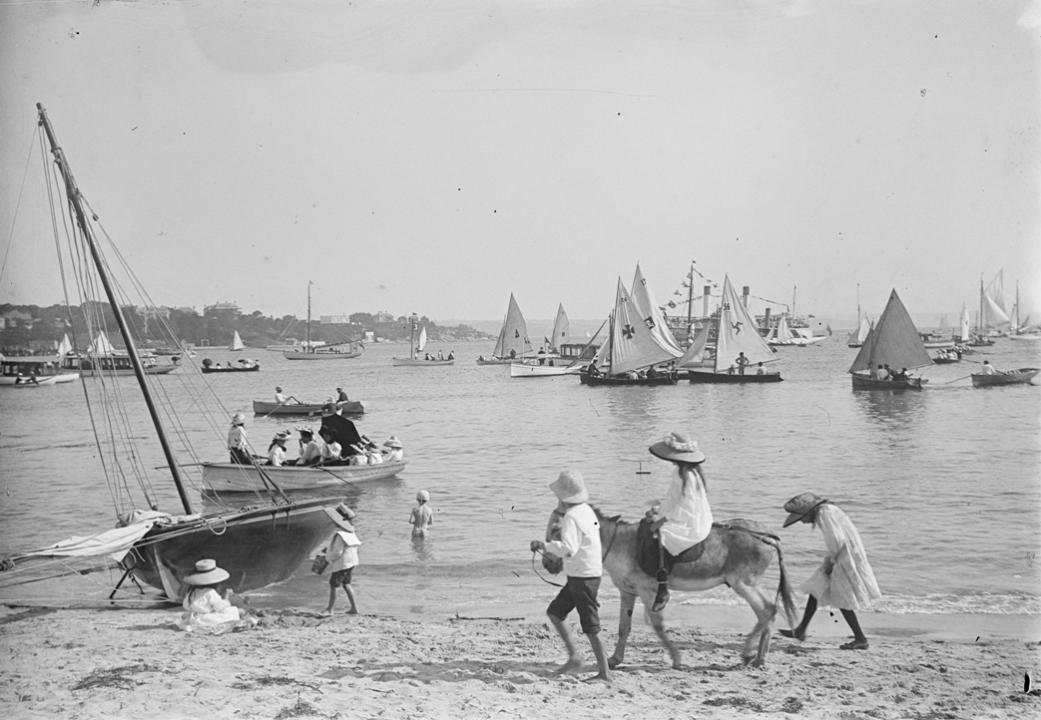April 10 - 23, 2022: Issue 534
Pittwater Fishermen: The Sly Family Of Manly And Narrabeen + The First Surfboat At Manly
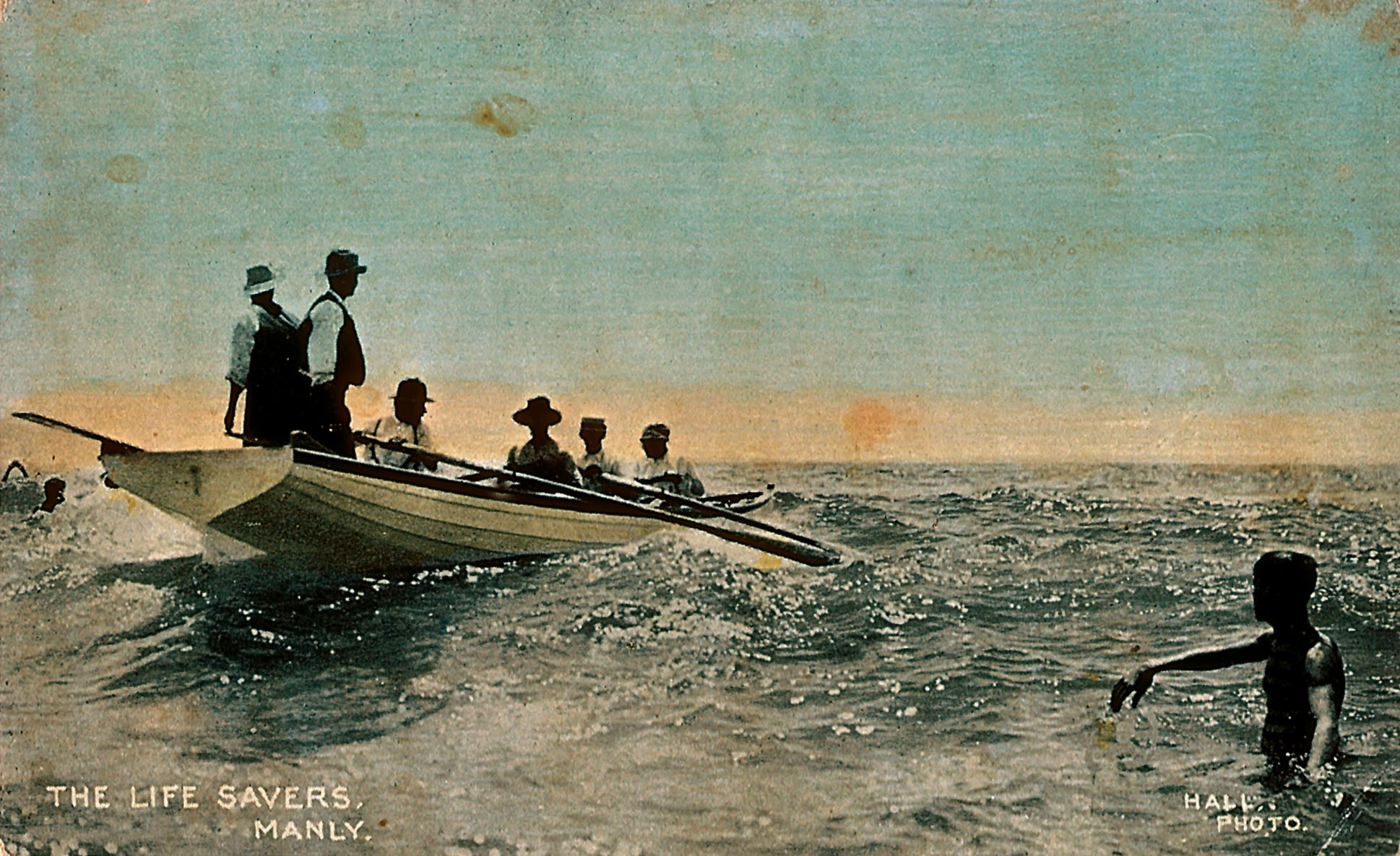
MY HOLIDAY. I
(From the Sydney Mail, September 7.)
Long before our arrival at the tents, if we had had any doubt with respect to the correctness of our surmise, our noses would have at once dispelled it; for the strong smell of the fish, cured à la Chinoise, that saluted our olfactories was so overpowering as to cause us to hesitate whether we should run the gauntlet of the tents, or whether we should give them a wide berth by making a detour. As it happened, however, that we required to replenish our stock of tea and sugar, it became absolutely necessary that we should visit the tent, these enterprising foreigners keeping the only depot on the Peninsula for the sale of these articles; and, consequently, "the ancient fish-like smell" had to be encountered.
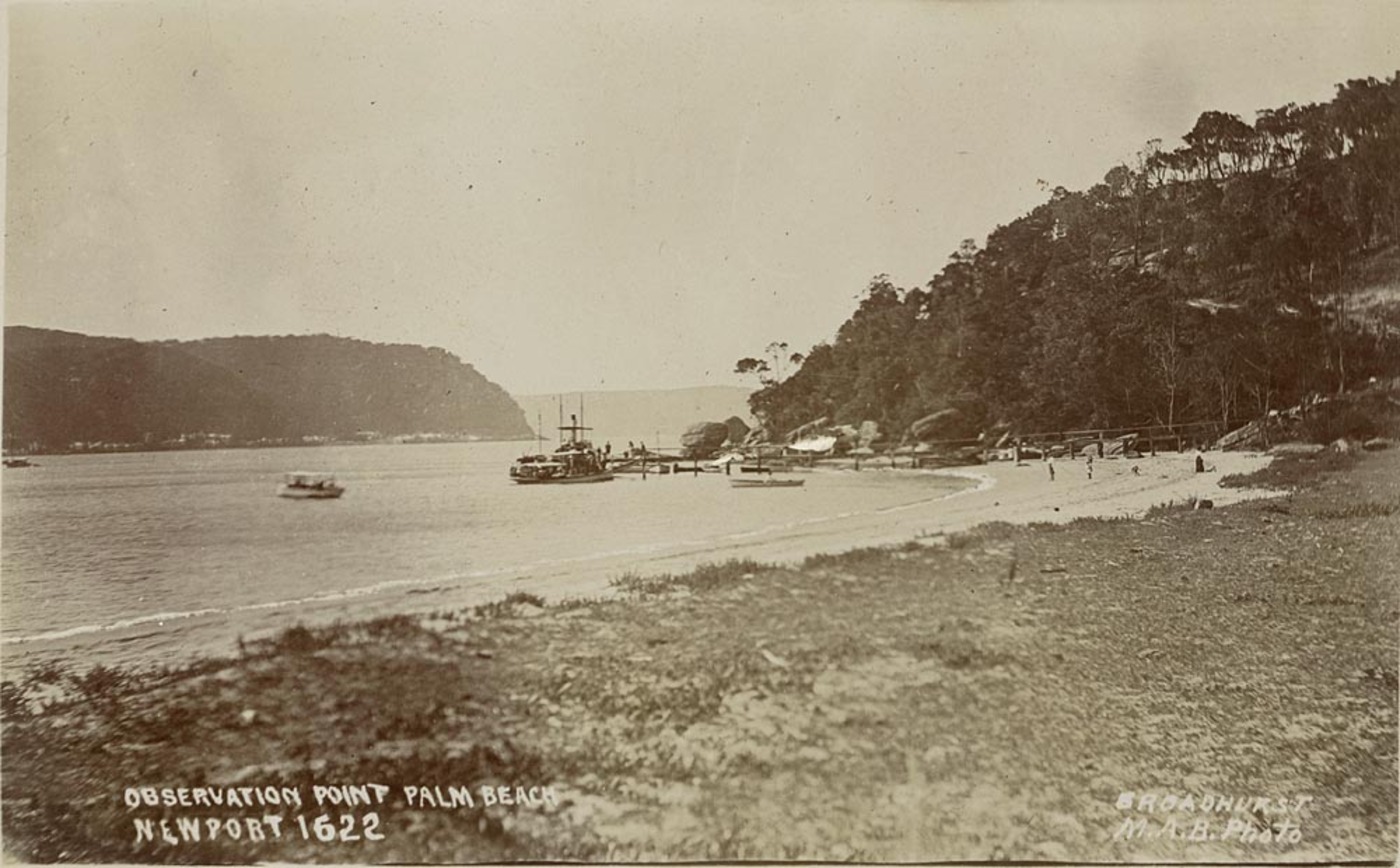
Chinaman's or Snapperman Beach and Observation Point, Palm Beach, Newport Digital Order Number: a106120 circa 1912, Broadhurst Image, courtesy State Library of NSW.
As we approached we met with all the materiel of a fishery. First, a long and apparently valuable seine was spread out on the grass a little above the beach to dry, and a boat hauled up on the sand showed that it had been recently used. Another, and a somewhat smaller, boat was moored out in deep water ready for use. A little further on, about ten or a dozen bushels of guardfish were spread out on the grass to cure, with small hopes, as I should imagine, of their drying under the influence of the weak and wintry sun. Next a small tent full of barrels of all kinds, but principally the light American oak flour barrels, showed the preparations for packing the fish obtained and dried during the summer season. Ten or a dozen yards further on was another tent,-the fish store-in which were piled up heaps of snapper and large-sized bream, all cured and ready for the Celestial consumption for which they had been prepared; and here we found the two Chinese, master and man, who owned the location. The master appeared a tolerably decent looking and intelligent man, who spoke English sufficiently well to be understood, and who very readily gave us all the information in regard to his fishery that we demanded from him.
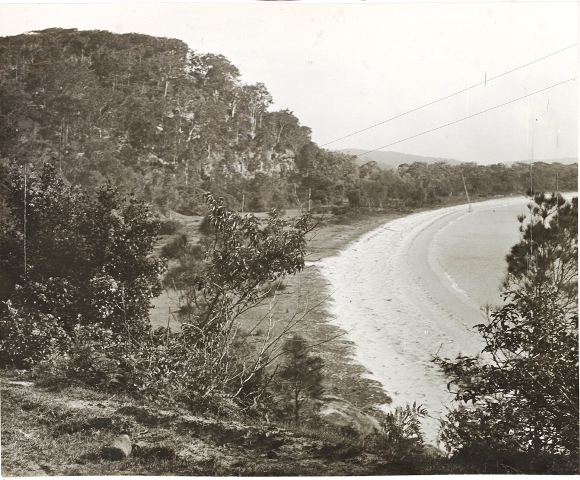 Their mode of procedure is this:-they fit out boats for persons willing to fish for them, of course keeping an account against them, for materials, rations, &c, supplied, and taking from them all the fish they catch suitable for curing, at a certain fixed price. The smaller fish they allow them to take into the Sydney market. In the season they have from fifteen to twenty boats at work fur them, principally manned by Europeans, besides which they buy from all who choose to come to them, offering to the fishermen the further convenience of the store they carry on, and from which they supply tea, sugar, and biscuit at a very small advance upon Sydney prices. We bought, at 3s. per lb., some really fine black tea, very much superior to any that is to be procured ordinarily at the grocers' shops of the metropolis. Sugar was 6d. per lb., similar to that for which 5d. is paid in Sydney ; whilst Wilkie's best cabin biscuits are retailed at 4d. per lb. As soon as the fish are procured they are cut open and gutted, lightly rubbed with salt, and then spread out in the sun to dry. In the summer this is very speedily and effectually done, although not without the fish obtaining that peculiarly rank and offensive smell that all who have passed by a Chinese store must have noticed. The supply of fish is allowed to accumulate during the summer, heaped in a tent devoted to the purpose, the heaps being occasionally turned, and every care taken against damp and wet; and so soon as the drying season is over-when the sun ís too far from the zenith as to have lost his power-the packing is commenced. No further trouble is taken in the packing, than to lay them in the barrels as closely as they can be got, and to press them down as hard as can be done with the hands. They are then headed up and forwarded to Sydney, to be distributed all over the interior wherever Chinese most do congregate. This season they had obtained about two hundred barrels of fish.
Their mode of procedure is this:-they fit out boats for persons willing to fish for them, of course keeping an account against them, for materials, rations, &c, supplied, and taking from them all the fish they catch suitable for curing, at a certain fixed price. The smaller fish they allow them to take into the Sydney market. In the season they have from fifteen to twenty boats at work fur them, principally manned by Europeans, besides which they buy from all who choose to come to them, offering to the fishermen the further convenience of the store they carry on, and from which they supply tea, sugar, and biscuit at a very small advance upon Sydney prices. We bought, at 3s. per lb., some really fine black tea, very much superior to any that is to be procured ordinarily at the grocers' shops of the metropolis. Sugar was 6d. per lb., similar to that for which 5d. is paid in Sydney ; whilst Wilkie's best cabin biscuits are retailed at 4d. per lb. As soon as the fish are procured they are cut open and gutted, lightly rubbed with salt, and then spread out in the sun to dry. In the summer this is very speedily and effectually done, although not without the fish obtaining that peculiarly rank and offensive smell that all who have passed by a Chinese store must have noticed. The supply of fish is allowed to accumulate during the summer, heaped in a tent devoted to the purpose, the heaps being occasionally turned, and every care taken against damp and wet; and so soon as the drying season is over-when the sun ís too far from the zenith as to have lost his power-the packing is commenced. No further trouble is taken in the packing, than to lay them in the barrels as closely as they can be got, and to press them down as hard as can be done with the hands. They are then headed up and forwarded to Sydney, to be distributed all over the interior wherever Chinese most do congregate. This season they had obtained about two hundred barrels of fish.
Besides this fishing station on Pitt Water, there are also others at Brisbane Water, on Tuggerah Beach Lake, and on Lake Macquarie, all carried on by Chinese. There are several others also to the south-ward of Port Jackson, though my Chinese informant could not give me the names of the places where they ore established. All these fisheries have been formed by Chinese merchants resident in Sydney; that at Pitt Water belongs to a Chinese merchant in George street, whose name I could not make out, although I tried very hard to do so. The Chinese from whom I had these details was a kind of superintendent or manager of the fishery, keeping accounts against the fishermen with perfect correctness, and keeping the books of the station in the same way as an English storekeeper would do. He showed his board of colored beads by which he did all his reckoning, his multiplication, division, addition, and subtraction ; but after about half-a-dozen explanations, which he went through with most exemplary patience, neither of us could make head or tail of it, albeit Nat, who considers himself exceedingly clever at accounts, said he thought he saw what the plan was.
Having purchased our stores, and obtained all the information we could from the boss, we filled our billy with water, and, obtaining the permission of the locataires, put it over their fire. When they found that we were going to take our midday repast, they brought out biscuit and butter and spread them before us, and when our pot boiled, produced their own tea and sugar for our use, thus performing the right of hospitality in true bush fashion. We were rather pleased at this, as we had previously imagined that the very last place to go to for a feed would be a Chinese tent. We made an excellent meal of biscuit, butter, and watercresses, and I think rather astonished master John at the quantity of comestibles that we managed to stow away. They had pressed us very hard to try some of their fish, and they certainly had a string of very fine fat mullet hanging up in their private tent, no doubt as a special delicacy, but neither of us could stand the odour, which nothing but long habit or absolute starvation could have overcome.
All the stronger for our meal-snack, Tom called it-we lighted our pipes, resumed our loads, and bade adieu to our entertainers, thanking them for the kind hospitality which they had furnished, the more particularly as it had been unsought on our part.
Crossing a bright clear brooklet that ran close to the rear of the tents, a couple of hundred yards brought us to a rocky headland forming the northern boundary of the cove on which the Chinamen were located. This we crossed by a miserable track knee deep in mud, and, arrived on the other side, we had Barranjuee full in front of us, about three quarters of a mile distant, with a long cleared flat, that had the appearance of having been at one time cultivated, lying between us and the mountain. This flat, which now intervened between us and Barranjuee, was scarcely two hundred yards across at the widest part dividing the Pacific from Pitt Water, and joining Barranjuee to the main. It is very low, and is fully exposed to whole sweep of the south-eastern gales that at some seasons prevail upon the coast, throwing up the waves in watery mountains upon the long beach that faces seaward, and scattering the spray in drenching showers right across into the bay. A dense scrub of ti tree and honeysuckle grows on the seaward side of the flat, forming a thick protecting belt almost up to the mountain, and this Nat and I determined to push through, whilst Tom went on ahead to the Customs station, whose white cottage we could see glistening brightly against the dark back ground of the vast cliffs of the mountain.
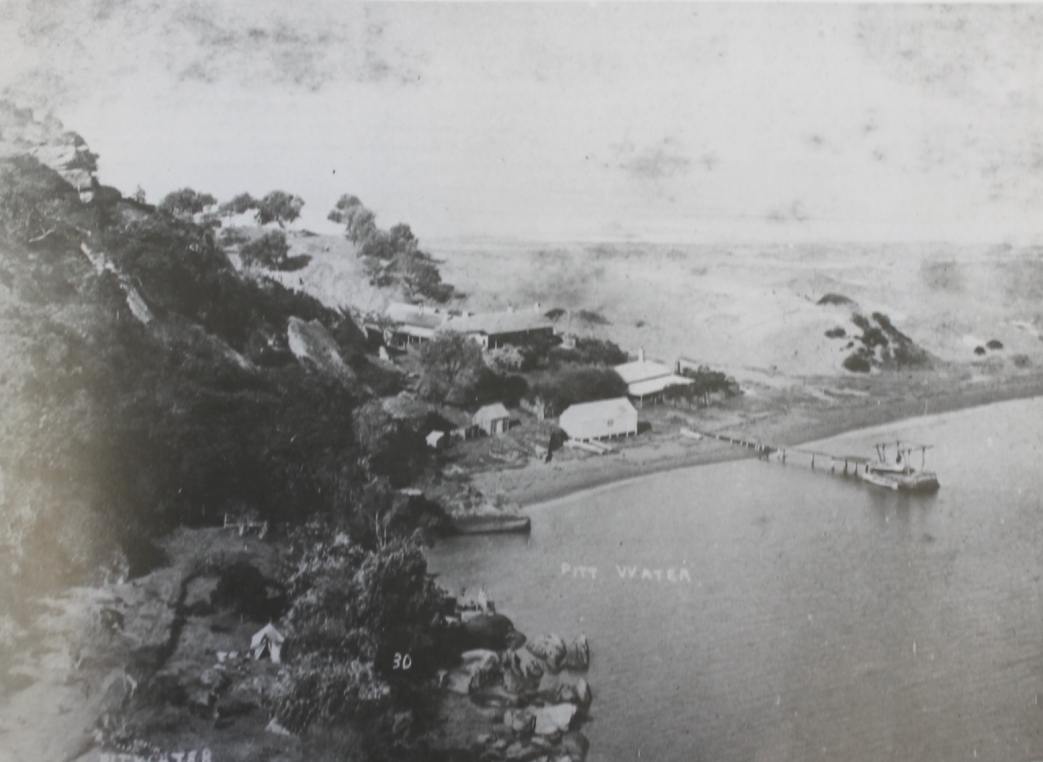
We had been led to expect that on the edge of this scrub we should put up any quantity of wonga wongas, and as Nat and I were desirous of making a triumphal entry into the station with a brace or two of these fine birds hanging at our girdles, we determined upon trying our luck. Carefully, and in a most sportsmanlike manner did we stalk along through the fern, which here grew as high as our waists, and formed an excellent cover for birds if they would but have come there. I fully expected every minute to put up, if not a wonga wonga, at all events a brace of quail; but we went on and on, and still nothing appeared. Nat audibly gave vent to his dissatisfaction, and stated as his private and particular opinion, that we had been humbugged. He uncocked his piece and threw it over his shoulder, whilst I was in the act of doing the same thing, when whirr !-up with a loud flapping of wings, that from its suddenness quite unnerved me and threw me off my guard, rose a magnificent wonga wonga, which in my agitation appeared to me as big as a turkey. It heeled round leisurely in front of me and lodged in the branches of a honey- suckle, full in sight, though out of gun-shot from where we stood, whilst I stood with mouth and eyes open, incapable of doing anything but watching its flight.
"What the mischief was that?" said Nat, in evident astonishment at the sound.
“Didn’t you see it? " I asked.
" Not a bit," he replied.
"It was a wonga, and as large a one as ever I saw. See, there he is on the honeysuckle vender, the fourth bough from the top."
"I see him," shouted Nat, as he darted off into the bush. ....MY HOLIDAY. (1861, September 9). The Sydney Morning Herald (NSW : 1842 - 1954), p. 3. Retrieved from http://nla.gov.au/nla.news-article13063749
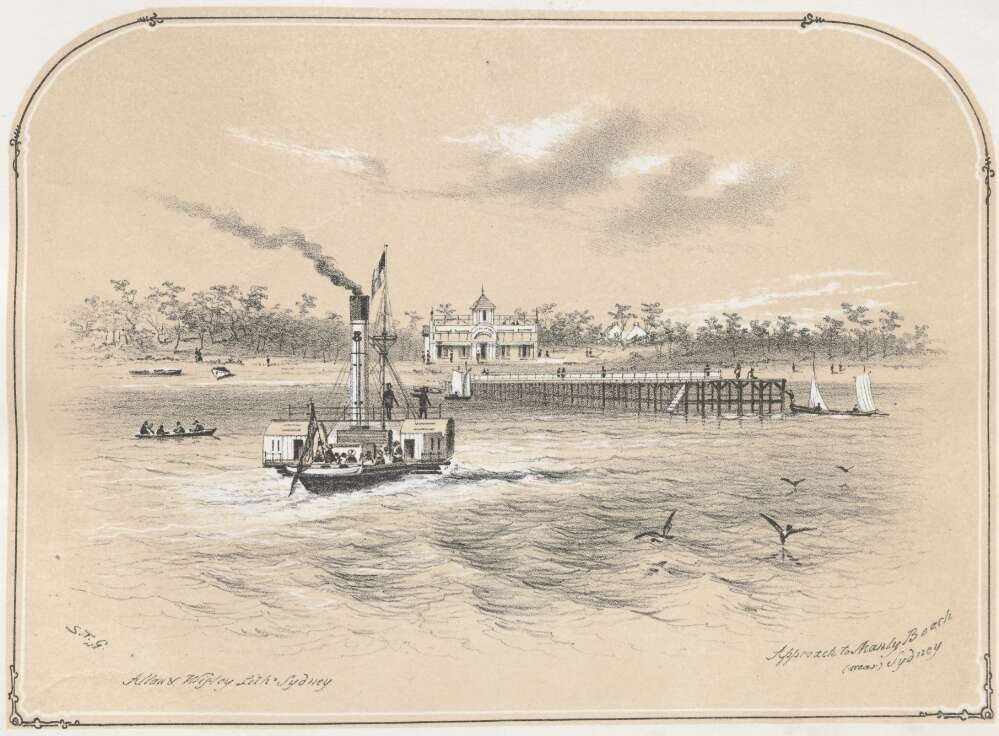
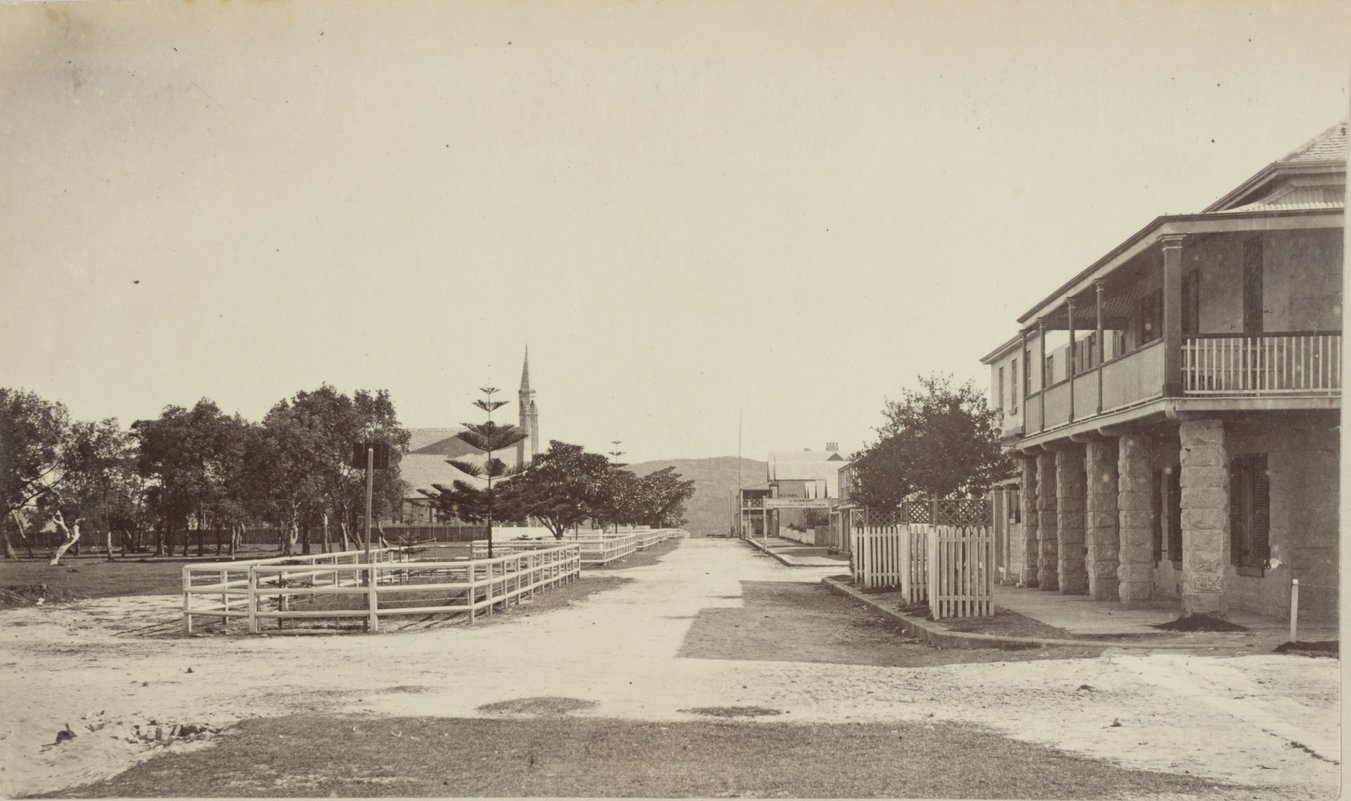
WATER POLICE COURT.-Tuesday. BEFORE the Water Police Magistrate, Mr. Deloitte, and Mr. Cooper. Thomas Collins, of Narrabeen, was, upon the information of Martin Wilson, fined £5 with 6s, 6d. costs of Court, for employing Olaff Olson ; £10 with costs, for employing Gustave Berry, and the same penalty for engaging Charles Jackson, the employees being deserters from the AEtos. A similar charge against the same party was withdrawn. WATER POLICE COURT.—Tuesday. (1860, March 7).Empire(Sydney, NSW : 1850 - 1875), p. 5. Retrieved from http://nla.gov.au/nla.news-article60406807
A female lyre-bird (menura superba), from Pittwater. Mr. James Wheeler. DONATIONS TO THE AUSTRALIAN MUSEUM DURING AUGUST, 1856. (1856, September 8). The Sydney Morning Herald (NSW : 1842 - 1954), p. 2. Retrieved from http://nla.gov.au/nla.news-article12986771
A White Heron (Herodias syrmatophorus) from Pittwater, by Mr. James Wheeler, St. Leonard's. DONATIONS TO THE AUSTRALIAN MUSEUM DURING SEPTEMBER, 1858. (1858, October 8). The Sydney Morning Herald (NSW : 1842 - 1954), p. 5. Retrieved fromhttp://nla.gov.au/nla.news-article13016767
James Wheeler, farmer, Narrabeen Lagoon, was on the information of John Redman, farmer, residing at Pitt Water, charged with having wilfully removed certain Government landmarks, namely, a corner-pin or stake from certain ground near Pittwater, this landmark having been erected by a licensed surveyor, and it not being necessary to re-move it for fencing or improving the land. Mr. W. Redman appeared for informant, Mr. Burton for defendant. It appeared from Redman's evidence that the peg in question was placed at the corner of defendant's land, and formed one of a line separating witness' land and land owned by defendant. Red-man did not see Wheeler pull up the peg, but when he told Wheeler that he should proceed against him for doing so, Wheeler said if he had been present when Mr. Neal (the Government surveyor) put it down he would then have pulled it up. There was another peg close to the corner peg pulled up, Redman's reason for instituting this proceeding was because defendant was trying to encroach on his land by claiming a line of eight feet in advance of his proper boundary. Several witnesses in corroboration of this evidence, and others in defence, were heard; when their worships considered the charge was made good, and fined defendant 40s., with costs of Court and professional costs of prosecution. WATER POLICE COURT. (1860, March 28). The Sydney Morning Herald (NSW : 1842 - 1954), p. 5. Retrieved from http://nla.gov.au/nla.news-article13038437
And were these 'law unto ourselves' types fishing?; some of them were, or trying to, as were others;
METROPOLITAN DISTRICT COURT. MONDAY BEFORE Mr District Court Judge M'Farland and a jury of four.
Skinner v Wheeler
This was an action to recover damages for maliciously destroying the fishing nets and sinking the boat of the plaintiff. Damages were laid at £200. The defendant pleaded a number of defences, the principal of which amounted to averments that the lagoon where the plaintiff was fishing was not an arm of the sea, that the land where the alleged trespass was committed was the property of the defendant, and that the defendant was not guilty of the acts set forth in the plaintiffs declaration. Mr Fisher and Mr Pilcher, instructed by Mr Dawson, appealed for the plaintiff, and Mr Redman for the defendant . The plaintiff was a fisherman, living at Manly Beach and the defendant was a farmer, living near the Narrabeen Lagoon, situate between Manly Beach and Pitt Water. The plaintiff, at certain periods of the year, sent fishermen with a boat and nets to the lagoon. For some months, as he alleged, the fishing on the lagoon was very good, and at those times, his average profits from this source were £1 10s a week. The plaintiffs boat was sunk in June, 1867. Plaintiff was informed by the defendant in a letter that the latter suspected foul play and recommended him to come to the lagoon to look after his boat. Plaintiff, on going to the lagoon, discovered his boat by part of his fishing net floating on the surface. The other portion of the net was battened down in the bottom of the boat, which had been filled with stones and sunk in twelve foot of water. Plaintiff's man borrowed defendant's punt to look for the boat, and in it there was some sawdust of timber corresponding to the wood of the battens fastening the net in the boat, and one of the witnesses for the plaintiff stated that, on his way to the defendants, he saw pieces of wood, the sawn ends of which corresponded to one or two of the pieces in the boat. In June, 1868, the plaintiffs men began to fish there again. At first there was nothing in the bed of the lagoon to impede the sweep of their nets, but afterwards the lagoon was filled with snags, and some thirty times or more the net was injured. One of the witnesses for the plaintiff swore that the defendant told him that he would not allow him or Skinner to fish in the lagoon, and that if he could not prevent it by fair means he would by foul. According to this witness (Eaton) - and his evidence in what follows was corroborated by a man named Pashley, and by the defendant's son - on the 23rd of July, he, Pashley, and Skinner, junior, were fishing on the lagoon, when they saw the defendant and his son in a boat. They saw Wheeler throw five snags from his boat into the lagoon, in different places where they usually dragged the nets. The defendant and his son then rowed to the shore, cut down three other small trees, carried them down to the boat and cast them into another part of the lagoon. The plaintiff's boat was at this time about fifty yards away from the last of the five snags, and about four hundred yards away from the last of the three. Two specimens of the snags were brought into Court. They were young forest oak trees, about ten feet long, and the boughs were pointed, apparently, with a tomahawk. The defendant and his son swore that they did not throw the snags into the lagoon, and that on that particular day, the 23rd July, they were engaged in cutting shingles. Defendant also alleged that in June, 1867, he was out shooting when he happened to see the plaintiff's net on the water, and he went out of his way to tell him of it. There were two or three other punts in the neighbourhood of the lagoon in June, 1867, one of which defendant believed was actually on the lagoon at the time. His own punts were often taken away and used without his permission. Evidence was given to show that the trees produced might have been washed into the lagoon by floods, and that they might have been cut down for the purpose of forming a cockatoo fence. Defendant called witnesses to discredit the character of the witnesses called for the plaintiff. One of these witnesses confessed that he had himself been charged with murder. The evidence as to the value of the boat and the nets, as well as to the nature of the fishery, was contradictory. There was evidence to show that the Narrabeen Lagoon was affected by the ebb and flow of the tide; and the defendant's plea of locus in quo was disallowed, on the ground that it was tantamount to a justification, and was, therefore, one of those defences which were not admissible excepting on five days notice being given. The jury found a verdict for the plaintiff, and assessed the damages at £10.METROPOLITAN DISTRICT COURT. (1868, October 20). The Sydney Morning Herald (NSW : 1842 - 1954), p. 2. Retrieved fromhttp://nla.gov.au/nla.news-article13174512
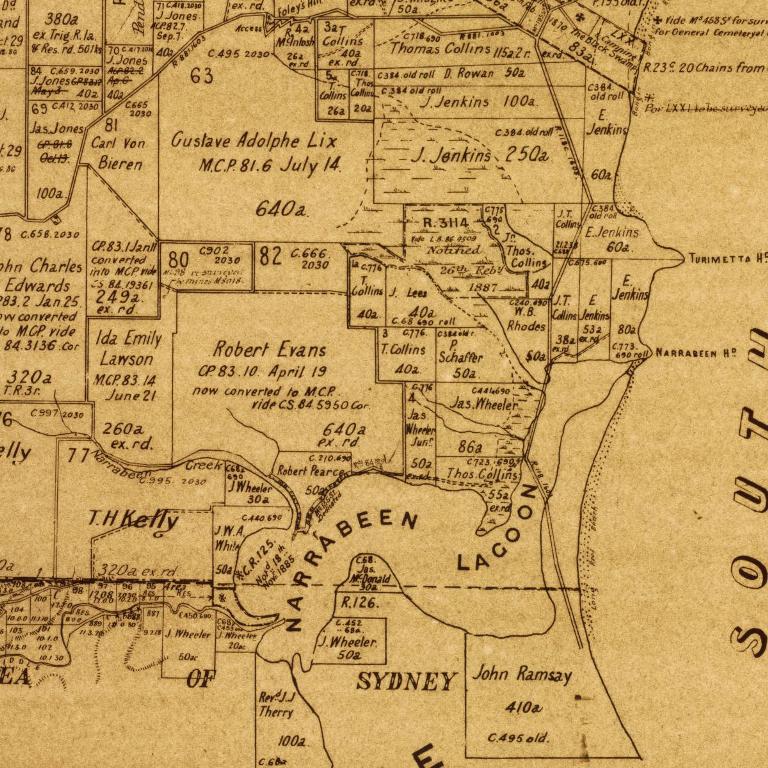
Enlargement of peice of Parish of Narrabeen, County of Cumberland [cartographic material] : Metropolitan Land District, Eastern Division N.S.W.
1886. MAP G8971.G46 svar (Copy 1). Showing placement of 'Collins' Lagoon side and 'Black Swamp' - Mona Vale (Turimetta).
James. Wheeler, the elder, James Wheeler, the younger, and Frank Poyner appeared pursuant to summons wherein they were charged that on the night of the 5th instant, at Narrabeen Lagoon, near Pittwater, they did wilfully and maliciously destroy a fishing net, the property of James Wilson. Mr. Gannon appeared for the complainant, and Mr. R. Driver for the defendants. Several witnesses were examined for the complainant, and the case was adjourned till tomorrow week. WATER POLICE COURT.—MONDAY. (1871, October 24).Empire (Sydney, NSW : 1850 - 1875), p. 2. Retrieved from http://nla.gov.au/nla.news-article60877416
Destroying a Fishing Net. — The Pitt Water People Again.
James Wheeler, the elder, James Wheeler, the younger, and Frank Poyner were charged with having, at Narrabeen Lagoon, near Pitt Water, destroyed a fishing net of the value of L5, the property of James Wilson. Mr. Gannon appeared for the complainant, and Mr. Driver for the defence. The evidence disclosed that on the night of the 5th instant, between 10 and 2, the fishing party, consisting of Wilson, Sly, and Pashley, were camped in a gunyah on Miss Jenkins's property, which runs down to Narrabeen Lagoon. Pashley was aroused by hearing a peculiar whistle, and called Sly, who aroused Wilson. Pashley and Sly went out through some rushes to where the net with which they were fishing was stretched out to dry. They there saw the two Wheelers and Poyner standing on the net. The younger Wheeler came off the net and walked towards them, close to the rushes.
They saw Poyner with a can or jar in his hand. He poured something out of the can on to the net. They were on the net about ten minutes, and then went away. When Sly called Wilson, he (Wilson) went in the direction of the only path anybody could take from the net, to get away from the lagoon, and saw the elder Wheeler running away from the net. He also saw two other men, but could not tell who they were. In the morning they examined the net, and took it up in their hands, but it fell to pieces. Evidence was given that sulphuric acid (oil of vitriol) had been poured on the net. The defence set up was that Wheeler and his son never left their house, at Narrabeen on that night, and that Wilson stated he did not know whether it was old or young Wheeler that he saw. The witnesses for the complainant were Wilson, Pashley, Sly, and Mr. Watt, Government Analytical Chemist; and for the defence, Mrs. and Miss Wheeler, John Farrell, Mileswater, and Skinner. — The bench disagreeing, there was no adjudication. Thomas Wilson, of Mona Vale, Pitt Water, complained that on the 6th instant, Sarah Farrell temporarily impounded four head of cattle, and neglected to feed and maintain them. — The case was not concluded when we went to press. — Mr. Redman appeared for the complainant, and Mr. Driver for the defence. Police Courts, This Day. (1871, October 31). Evening News(Sydney, NSW : 1869 - 1931), p. 2. Retrieved from http://nla.gov.au/nla.news-article129969185
Before Mr. Hale. James Thomas Pashley was charged by James Wheeler, the elder, of Narrabeen, farmer, for that he did on the 23rd day of October, at the Water Police Court, during the hearing of the cause Wilson v. Wheeler and others, falsely, wickedly, wilfully, and corruptly commit wilful and corrupt perjury. The information further stated that prosecutor had reason to believe that defendant was about to leave the colony. Mr. Hellyer appeared for the prosecution; and defendant, who pleaded not guilty, was represented by Mr. David Buchanan (instructed by Messrs. Gannon and Curtis). James Wheeler, the elder, deposed : I am a farmer and house proprietor, residing at Narrabeen; I have lived there about thirty years, and was there on the 5th October last ; on the night of that day I was at my residence, and did not see Pashley at all during the day ; the nearest part of Miss Jenkins's property is about a mile and a-half from my house; there is a place called the Fisherman's Hut, on Miss Jenkins's property; I remember seeing a net there on the Thursday; I was charged before Mr. Cowper and Mr. Williams with destroying the net ; the net covered 500 yards from one end to the other; on the 5th October I was not at the Fisherman's Hut, either at dark or at any other time; my wife, daughter, and sons, were stopping with me that night, and Poyner was on the premises that day, having come there the previous night ; Poyner was there on the night of the 5th ; Poyner left my house on the night of the 5th October to go to the net house, where he slept, and I did not see him after that ;my son James Wheeler was at home on the night of the 5th October, and went to bed before I did ;he retired somewhere about 10 o'clock ; I was not out of the house after 10 o'clock that night ; on the night of the 5th October I was not off my premises with at the said Frank Poyner ; I did not go to Wilson's net ground of Miss Jenkins, near night ; I was not on the night, nor was I on the net; I was not on the net with Frank Poyner that night, nor did I on that night say to him while standing on the net, " Here's the bunt, Frank ; " the night of the 5th October was stormy, and bad weather. James Wheeler the younger, son of last witness, gave evidence in corroboration of prosecutor's statement that neither he nor his father left the house on the 5th October after going to bed, and did not see a net at the fisherman's hut on Miss Fisher's property on the 5th October. Francis Poyner gave similar evidence, and the case was adjourned until Friday next. WATER POLICE COURT. (1871, November 28). The Sydney Morning Herald (NSW : 1842 - 1954), p. 3. Retrieved from http://nla.gov.au/nla.news-article13248411
METROPOLITAN DISTRICT COURT. WEDNESDAY. BEFORE Mr. District Court Judge SIMPSON.
WILSON V. WHEELER.
This was an action for malicious prosecution, in which the plaintiff, James Wilson, sued the defendant, James Wheeler, for £200 damages. Both parties resided near Manly Beach, at a place called Narrabeen, to the north of Manly. The plaintiff, who carries on business as a fisherman, went, on the 5th of October last, to a lagoon near defendant’s residence, with three other men, for the purpose of trawling a net. About an hour before sunset, the net having been taken out of the water, was spread on the grass to dry ; and plaintiff and his companions lay down to sleep (camping out) about8 or 9 o'clock. In the middle of the night, plaintiff's attention was called by one of the men with him named Pashley, to something going on in the vicinity of the net. Wilson, Ashley, and Sly got up, and went to see what it was. A boy who was with them did not go to see the net. Plaintiff then saw defendant and some other men running away. On examining their three nets immediately afterwards, portions were found to have been destroyed by some kind of acid. Plaintiff summoned defendant and his son to the Police Office for wilful destruction of property, and they were ordered to pay a fine, together with the cost of proceedings. Some time after (in November last) the defendant in this case took proceedings against the plaintiff, and the two other persons (Pashley and Sly) for perjury. Plaintiff was accordingly apprehended at Manly Beach on a warrant (the defendant having sworn that the plaintiff was about to leave the colony), lodged in the lock-up at Manly, brought to Sydney, and lodged in the Cumberland-street watch-house. Having been brought before the Central Police Court, Wilson was committed for trial. He was not tried, however, as the Attorney-General declined to prosecute. Out of these proceedings for perjury the present action arose. It being necessary in actions of this nature to prove the " determination " of the previous case, a question arose as to the admissibility of the formal memorandum of nolle prosequi endorsed on the back of the copy of proceedings forwarded from the Police Office. The counsel on one side contended that the endorsement of the Attorney-General would be sufficient proof of the " determination " of such a case ; and the learned counsel for the defence (Mr. Butler) denied that such determination could be proved otherwise than by direct evidence. The Judge said that his impression was that such an endorsement would not be evidence ;at the same time supposing the Attorney-General was not in Court, he (the Judge) did not see how the matter could be proved in any other way. He could see very great inconvenience resulting from proposing to call on the Attorney-General in such cases. He ruled that the evidence produced to be tendered was admissible, until cause to the contrary should be shown. The man Pashley gave evidence confirmatory of the evidence of the plaintiff.
Mr. Plunkett (secretary to the Attorney-General), having been called, was asked several questions by the counsel for the plaintiff as to the memorandum endorsed on the record of evidence (taken at the Police Office) when the Attorney-General declined to prosecute. These questions were all objected to by Mr. Butler, whose objections were sustained by the Court. Mr. Plunkett stated that a memorandum was made in the " Deposition Book" in all cases when the Attorney-General declined to prosecute. That book was kept by a clerk, as a matter of reference. The book was produced, but the making evidence of the entry therein as to the determination of the case alluded to was objected to by the counsel for the defence. The witness was then asked by Mr. Salomons, whether the Attorney-General had directed a letter to be written to the Bench of Magistrates stating that the Attorney-General did not intend to prosecute in the case of the Queen v. Wilson, for perjury. The witness answered (subject to objection)that he had received written instructions from the Attorney-General to write the letter produced. This answer was objected to by the opposing counsel, and rejected as evidence by the Court. There was no other memorandum made but that on which the letter had been written, according to the practice of the last eighteen years. George Sly's evidence was corroborative of that given by Wilson and Pashley about the net. The case was not terminated when the Court rose at 4.30 p.m. METROPOLITAN DISTRICT COURT. (1872, March 28). The Sydney Morning Herald (NSW : 1842 - 1954), p. 2. Retrieved from http://nla.gov.au/nla.news-article13254992
In another of these cases an indication of James Wheeler's sense of ownership of the lagoon and all in it surfaces as well as George Sly now working for Mr. Wheeler and getting toi spend Christmas in gaol as a result:
Breach of the Fisheries Act.
Two men, named Joseph Foscatier and George Sly. were charged before Messrs. Marsh, Field, Hale, and Solomon, at the Water Police Court, with a breach of the Fisheries Amendment Act, 21 Vic, No. 10, section 2. Constable Skinner deposed that, on November 18, he saw the defendants leave Mr. 'Wheeler's residence and row about a mile down the Narrabeen lagoon and commence fishing. As they were drawing in the net with about 3 1/2 bushels fish, he charged them with a breach of the Act by using over 90 fathoms, and meshes less than 4 inches. The net they were using was about 200 fathoms, with meshes about 2 1/2 inches in size. When apprehended, they said they were sent by Mr. Wheeler. [Case proceeding.] Breach of the Fisheries Act. (1880, December 2). Evening News (Sydney, NSW : 1869 - 1931), p. 2. Retrieved fromhttp://nla.gov.au/nla.news-article108735606
This case was also reported in the Newcastle Morning Herald and Miners Advocate on December 7th and was referred to as a 'case of some importance'
Breach of the Fisheries Act.
Two men, earned Joseph Forestier and George Sly, were charged yesterday morning, on remand, before Messrs. Marsh, Field, and Neale, at the Water Police Court, with a Breach of the Fisheries Act, Amendment Act 31 Vic. No. 10, Section 2. Mr. J . M. Curtis appeared for the defendants, and Messrs. Lowe and Clayton for the prosecution. The offence consisted in fishing on November 18 in the Narrabeen Lagoon with nets of 200 fathoms in length and meshes of 2 1/2 inches, in contravention of the Act, which certifies that 90 fathom nets should be used, with meshes no less than 4 inches. Constable Skinner proved the case. Considerable discussion took place as to whether the lagoon was an estuary of the sea, and the bench ruled that the question had been settled in a case previously tried, when it was decided that it was an estuary of the sea. Mr. Curtis stated that a question of title was involved, and that Mr. Wheeler was the owner of the lagoon, and the defendants were employed by Wheeler and had a perfect right to fish in the lagoon with any sized nets they chose to use. As there were several witnesses to examine for the defense, the bench remanded the case until Thursday next. Breach of the Fisheries Act. (1880, December 10). Evening News (Sydney, NSW : 1869 - 1931), p. 3. Retrieved from http://nla.gov.au/nla.news-article108749997
The case against Joseph Forestier and George Sly for a breach of the Fisheries Act Amendment Act, 81 Vic, No. 10, section 2, was resumed at the Water Police Court, yesterday, before Messrs. Marsh and Field. Water police constable Turner gave evidence corroborative of that of constable Skinner, and sketches of the lagoon were produced. Mr. J. M. Curtis, for the defendants, took an objection that Narrabeen Lagoon, where the offence was alleged to have been committed, was not an estuary according to the real definition of the term; but the Board overruled the objection. The point had been decided in a previous case in the affirmative. Mr. Curtis also raised the question of title. Mr. Wheeler was the owner of the lagoon, and the defendants were employed by him, and had a perfect right to fish in the lagoon with any sized nets they chose to use. At this stage the case was again postponed for a week. NEWS OF THE DAY. (1880, December 10). The Sydney Morning Herald (NSW : 1842 - 1954), p. 5. Retrieved from http://nla.gov.au/nla.news-article13484199
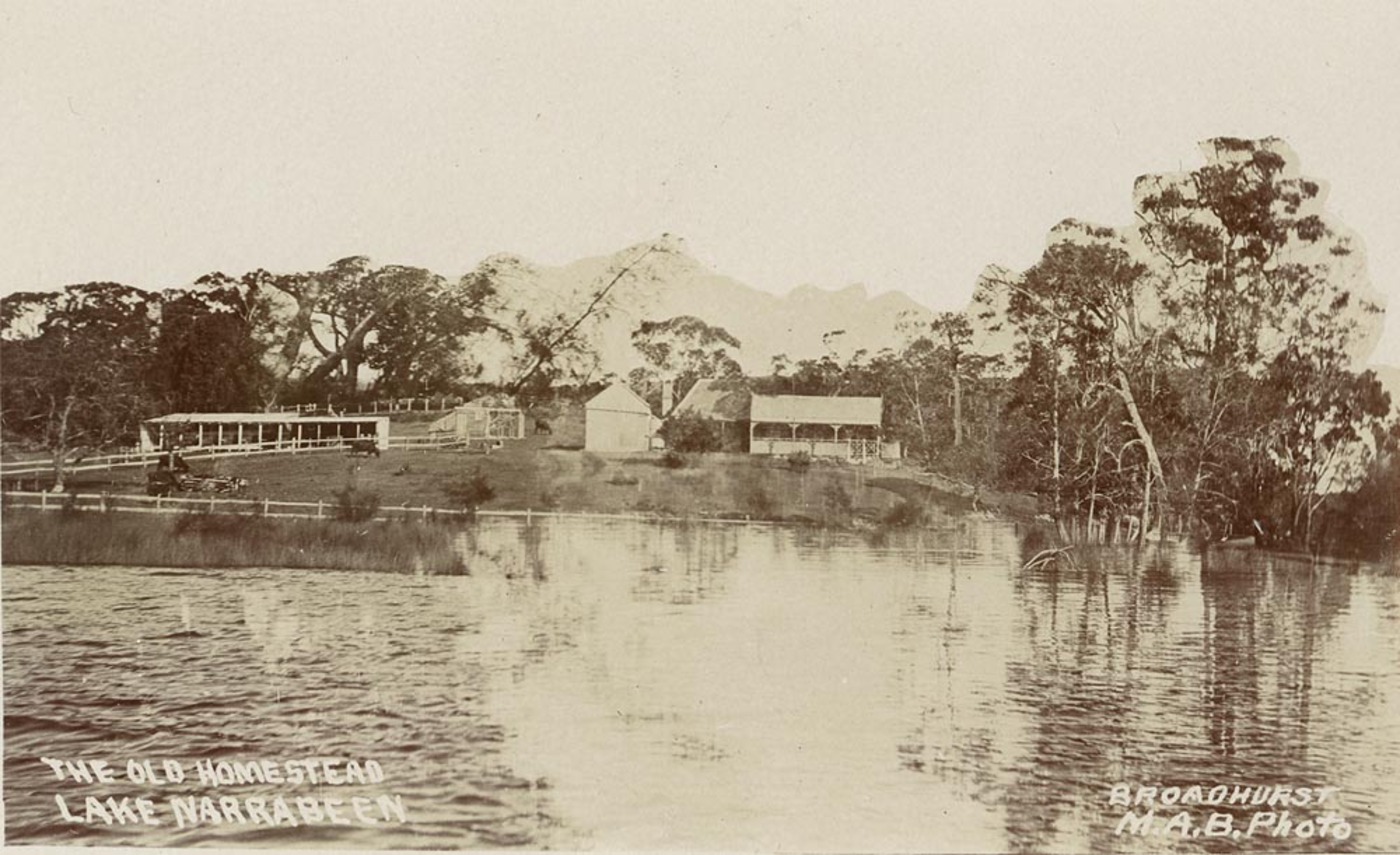
The Old Homestead, Lake Narrabeen, from the Broadhurst Scenes of Narrabeen Album, Image no.: a106064h, courtesy State Library of NSW.
Wheeler Creek forms part of the border between the suburbs of Oxford Falls and Cromer. The name of the creek and the nearby suburb of Wheeler Heights is taken from a pioneer European settler, James Wheeler, who purchased land here and built a home for his family near the creek in 1836.
FRASER.—WHEELER—April 16, at the residence of the bride's parents, by the Rev. Alfred Lloyd, John, eldest son of Mr. David Fraser, of Manly Beach, to Elizabeth, daughter of Mr. James Wheeler, of Eagle Vale, Narrabeen Lagoon. Family Notices (1877, May 19). The Sydney Mail and New South Wales Advertiser (NSW : 1871 - 1912), p. 634. Retrieved from http://nla.gov.au/nla.news-article162684584
WHEELER.— June 29. at Prince Alfred Hospital, James Wheeler, sen., of Narrabeen, aged 83 years. Family Notices (1890, July 5). The Sydney Mail and New South Wales Advertiser (NSW : 1871 - 1912), p. 54. Retrieved from http://nla.gov.au/nla.news-article163645118
THE Friends of the late JAMES WHEELER, Sen., are respectfully requested to attend his Funeral ; to move from the Church of England, Corso, Manly, at 11.15 a.m., for Narrabeen. T. WAUGH and Co., Undertakers, Manly. Advertising (1890, July 2). The Daily Telegraph (Sydney, NSW : 1883 - 1923), p. 8. Retrieved from http://nla.gov.au/nla.news-article235785970
Mr. James Wheeler, sen., of Narrabeen, died on Sunday, at 3 o'clock, after a lingering illness. For the last six months he became more and more enfeebled, and while conversing with two friends on Sunday afternoon expired from disease of the right side of the heart, with kidney disease and dropsy. The deceased gentleman arrived in the colony in the early days, being one of its oldest pioneers. He was 80 years of age, and leaves a widow and nine children, and thirty-nine grandchildren. Mr. Wheeler, who spent his lifetime at Narrabeen, amassed a considerable fortune. Two sisters of the deceased are living in the colony. Sydney Hospital. (1890, July 2). Evening News (Sydney, NSW : 1869 - 1931), p. 2. Retrieved fromhttp://nla.gov.au/nla.news-article113340802
WHEELER.--In sad remembrance of my dear father, James Wheeler, of Narrabeen, who died on the 29th June, 1890, aged 80 years. Inserted by his daughter, M. Mahony, 185 William-street, city. Family Notices (1891, June 29). The Sydney Morning Herald (NSW : 1842 - 1954), p. 1. Retrieved from http://nla.gov.au/nla.news-article28270820
WHEELER. — May 9, at her daughter's residence, Narrabeen, Elizabeth, relict of the late James Wheeler, sen., aged 92 years. Family Notices (1905, May 11). The Australian Star (Sydney, NSW : 1887 - 1909), p. 4 (FIRST EDITION). Retrieved from http://nla.gov.au/nla.news-article231846295
MRS. HANNAH WHEELER. Mrs. Hannah Wheeler, wife of Mr. George Wheeler, one of the older residents of Manly and district, died recently at her home Delmar, Pittwater-road, Deewhy. The Wheeler family have been landholders in the Manly, Deewhy, and Narrabeen districts since 1836, where the late Mr. James Wheeler made extensive purchases, the family being established at The Homestead, at the top of Narrabeen Lake. Mrs. Wheeler went to reside at Deewhy many years ago, when the coach was still the principal means of communication in the Warringah district. She leaves six sons and four daughters. The interment took place in the Manly Cemetery. MRS. HANNAH WHEELER. (1930, August 2). The Sydney Morning Herald (NSW : 1842 - 1954), p. 20. Retrieved from http://nla.gov.au/nla.news-article1669265
George Wheeler, was a Somerset farmer who was a weaver by trade. He arrived in Sydney in 1817 to work at Simeon Lord's mill at Botany. He remained seven years before setting up a soap and candle factory in Kent Street with his two sons. Soap manufacture had little appeal and son John took up farming at Watson's Bay and James entered the hotel business.
In 1836 James Wheeler boarded a cutter bound for a shooting expedition at Tuggerah Lakes. A gale blew them ashore at Long Reef where they were forced to remain for 2 weeks. During that time James explored and fell in love with the district. The Jenkins family were the only residents and the place was alive with game.
Wheeler applied for and received a grant of 100 acres at Dee Why, but it was found most of the land was already promised to the boatbuilder, William Cossar, years earlier. As a consolation Wheeler was granted 86 acres at Fox's Flat on the north side of Narrabeen Lagoon facing Pittwater Road. He later acquired land south of the Lagoon and built the Homestead on the banks of South Creek. Wheeler cultivated potatoes and cabbages and these were sent to Sydney markets via boat from North Harbour, Manly.
Concerned about educating his children, James Wheeler returned to live in Sydney for the next few years and then moved to North Sydney where he built a row of terraced houses adjoining the post office. James was 80 when he died in 1890. His son James Jnr, unable to resist the rustic charm of Narrabeen, had returned there permanently in 1878. In May 1926, members of the Manly-Warringah and Pittwater Historical Society made a pilgrimage to the Wheeler's old homestead and family vault.
NARRABEEN PIONEER. PILGRIMAGE TO WHEELER'S HOMESTEAD.
Members of the Manly, Warringah, and Pittwater Historical Society on Saturday afternoon made a pilgrimage to Wheeler's old homestead and vault at South Creek, Narrabeen Lakes. About sixty people assembled round the vault, and the president of the Warringah Shire (Councillor A. G. Parr) spoke of the work of the members of the Wheeler family and the part they played in the early history of Narrabeen.
Mr. P. W. Gledhill, honorary secretary of the society, read a paper, in which he gave details of the life of Mr. James Wheeler, who settled at Narrabeen in 1836, and lived in the district throughout his life. He died on June 91, 1890, at the age of 80 years, and at his request was buried within a short distance of the old homestead.
It was announced during the afternoon that Mr. James Wheeler, a son of the pioneer, had promised the Rev. N. M. Lloyd, rector of Narrabeen, to give a portion of the land surrounding the vault as a site for a church, on condition that the vault was not removed, and that it was cared for. The church when erected would be known as St. James' Wheeler Memorial Church.
Other speakers were Captain J. H. Watson (president of the Royal Australian Historical Society; Mr. D. Hope Johnston (president Manly, Warringah, and Pittwater Historical Society), the Rev. A. R. Ebbs (rector of St. Matthew's, Manly, and Mr. P. Nolan. NARRABEEN PIONEER. (1926, May 11). The Sydney Morning Herald (NSW : 1842 - 1954), p. 9. Retrieved from http://nla.gov.au/nla.news-article16291331
Reports of all the fish caught, of a large size and in masses, by the Sly family, make regular appearances in the papers of yesterday.
What also regularly appears is their attempts to save people or that they are the ones who find people lost at sea and all members of the family being involved with the early life saving movement at Manly - this was something the children of George Sly the Baker and his grandchildren all contributed to in one form or another:
About half-past 3 o'clock in the afternoon a feeling of alarm was experienced amongst the visitors on the wharf and harbour reserves when it was observed that a pleasure boat was drifting on the waves between Smedley's Point and Dobroyd Point, and apparently unoccupied A boat was immediately put off by Inspector Skinner and Charles Sly. These men brought the drifting boat to Manly, and reported that they had found it empty- a collection of wild flowers and bulrushes denoting however, that it had been recently occupied A pair of odd oars were in the boat, which is an ordinary skiff, some 18ft in length, with centreboard, and varnished inside and out. It is conjectured that the boat must have been left behind unnoticed by a yacht to which it had been insecurely fastened, or that it had drifted away from one of the many beaches on which pleasure parties had landed. MANLY. (1893, October 3). The Sydney Morning Herald (NSW : 1842 - 1954), p. 6. Retrieved from http://nla.gov.au/nla.news-article13907828
BOATING ACCIDENT NEAR MANLY. A BOY DROWNED.
As briefly reported in our last edition of yesterday, a sad boating accident occurred near Manly, when a boy named 'William Henry Norton, 8 years of age, lost his life. About 3 o'clock Mr. Charles Walker engaged a boat from Charles Sly at the Manly Wharf to go to Middle Harbor. In the boat were also Mrs. C. Walker, Mrs. Norton, and her son, William Henry. About 4' o'clock the boat got in the 'bambora' off Dobroyde Point, and was struck by a sea and capsized, throwing the occupants into the water. Mr. Walker seized Mrs. Walker and got her safely to the rocks, and' on a second attempt also rescued Mrs. Norton ; but the boy was not seen after the craft turned over. The spot where the disaster occurred is a very dangerous one, and boating men always gave it a wide berth. The heavy seas rolling m yesterday completely smashed the bout on the rocks, and Mr. Walker was cut and scratched all over.. A boat from the ' Pirates' ' camp at Forty Baskets Beach conveyed the party to the Manly Wharf, and they were in a pitiable plight. Mr. Walker was without a coat, none had hats, and one of the ladies had only one boot, and all were, of course, wet to the skin. Constable Taylor procured stimulants, and did all that was possible before they left for town at 6 o'clock. All the parties live at 33 Forbes-street, Redfern. The boy lost is an only child. The water police, on being-informed of the disaster, immediately proceeded 'to the spot and made a search for the body of the child, without, however, finding it. This morning the quest was renewed. It is feared that it has been swept out to sea. BOATING ACCIDENT NEAR MANLY. (1898, February 9). Evening News (Sydney, NSW : 1869 - 1931), p. 6. Retrieved from http://nla.gov.au/nla.news-article108771885
Another Manly Rescue.
At the time of the Smallpage— Miss Thorpe drowning case at Manly we published a photograph showing two Manly fishermen, George and Eddie Sly, successfully running their boat through the breakers as evidence of what could be done were a rescue boat available. The brothers have rescued several people from drowning, the last instance being; on Monday morning, when, while fishing off the Quarantine Station at North Head, they noticed some object in the water near Blue Fish Point. At considerable personal risk owing to the heavy swell they reached the spot and rescued a young woman in an unconscious condition. They took her round to Fairy Bower, whence the police conveyed her to the hospital, where she is recovering. She is stated to be a Miss Florence Simpson, 19, of North Sydney, but declined on Tuesday to state how she got into the water. Another Manly Rescue. (1903, January 21). The Sydney Mail and New South Wales Advertiser (NSW : 1871 - 1912), p. 148. Retrieved from http://nla.gov.au/nla.news-article163778824
THE MANLY MYSTERY.
Florence Simpson, a domestic servant, aged 18, was charged before the Water Police Court yesterday with attempting to commit suicide by drowning herself. The evidence was that George Sly, a fisherman, was fishing off Blue Fish Point, at Manly, on Monday last, when he heard screams. He pulled in the direction of the sound, and saw a woman struggling in the breakers. With some difficulty he managed to rescue her from her dangerous position. She was then quite unconscious. Subsequently she was taken to the Manly Cottage Hospital, where she remained until yesterday. Constable Gippel went to the spot at which she was rescued, and later on charged her with attempting to commit suicide. She had gone over the rocks from a height of about 20ft. An hour's imprisonment was ordered by the Bench formally, and the girl was taken away by some friends. THE MANLY MYSTERY. (1903, January 23).Evening News (Sydney, NSW : 1869 - 1931), p. 3. Retrieved from http://nla.gov.au/nla.news-article113403717
THE MANLY MYSTERY.
The City Coroner held an inquiry to-day into the circumstances surrounding the death of an unknown man whose body was found at Manly on Wednesday. William Sly, a wharf labourer, said that about 6.15 a.m. he was going to work at the Manly Wharf, and on the harbour beach, below the high water mark, he saw the body, lying face downwards. Dr. Jamieson .examined the body, which was that of a man about 55 years of age. He had been dead from 24 to 86 hours. There were no marks of violence except some scratches and abrasions about the forehead; and they were apparently caused after death. The body presented the characteristics and outward appearances of death from asphyxia by drowning, end that, in his opinion, was the cause of death. Constable Jones stated that the man's clothes contained 2s 10d, a red crocodile skin tobacco pouch, and a white handkerchief. William Walton, a watchmaker, residing at Manly, said that about 9.30 p.m. on the 19th instant he was fishing off the cargo wharf at Manly. He saw a man come along- towards the harbour end of the wharf.- The clothes he had seen at the morgue and those the man was wearing were similar. Witness was there about 10 minutes, and did not see anyone return, but shortly after the man passed he heard a noise as if someone had slipped on a gangway on wheels. He went to the end of the wharf, and in his opinion the man must have got into the water, or gone away in a boat. There had been a boat moored there previously. He had heard some voices, and thought it must have been someone in a boat When he (witness) went to the end of the wharf he saw no person and no boat. An open finding was recorded. THE MANLY MYSTERY. (1904, April 21).Evening News (Sydney, NSW : 1869 - 1931), p. 5. Retrieved from http://nla.gov.au/nla.news-article113909322
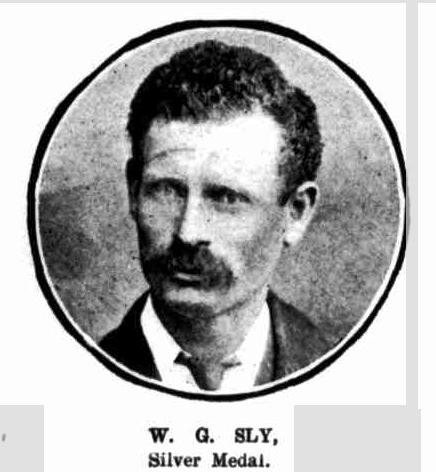
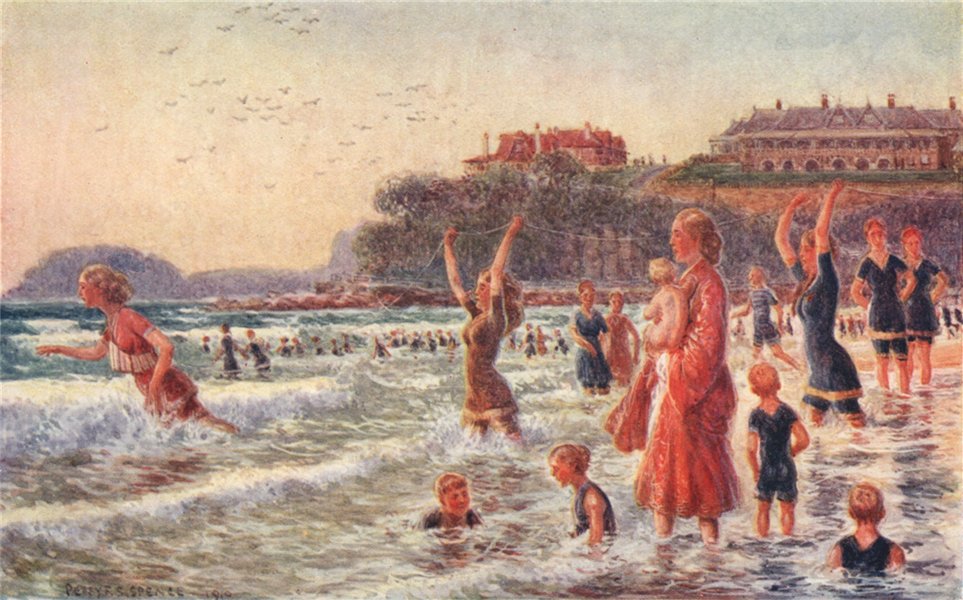
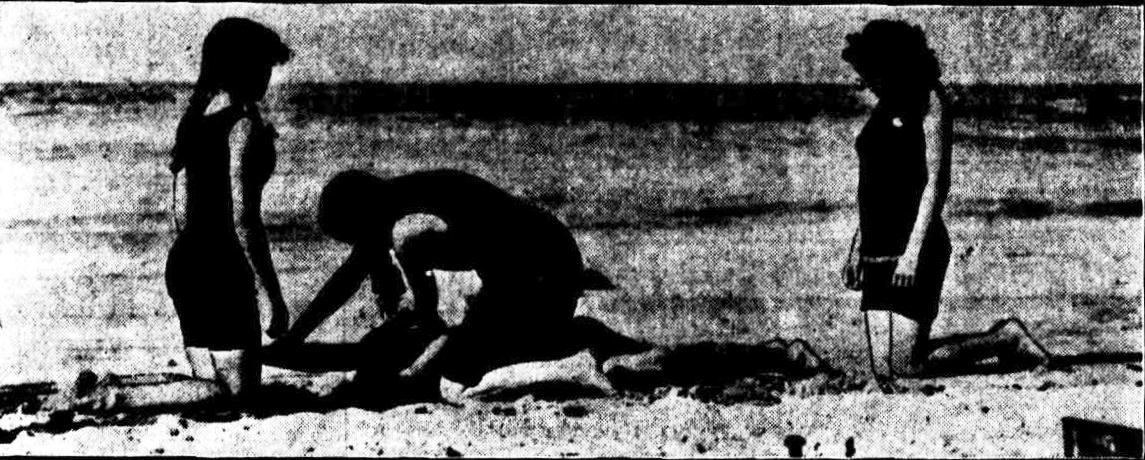
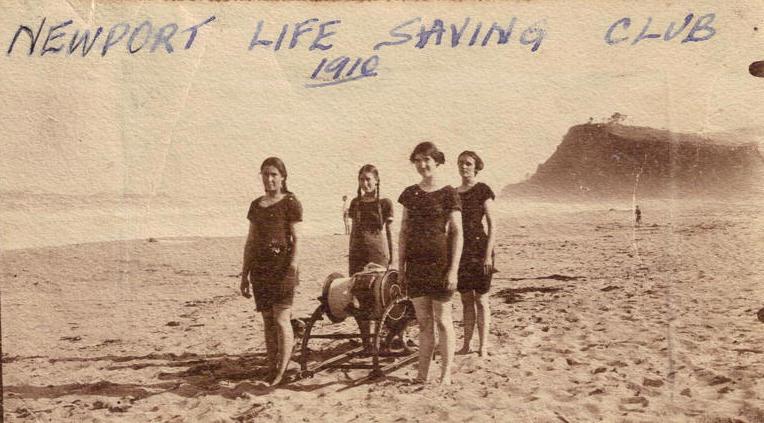
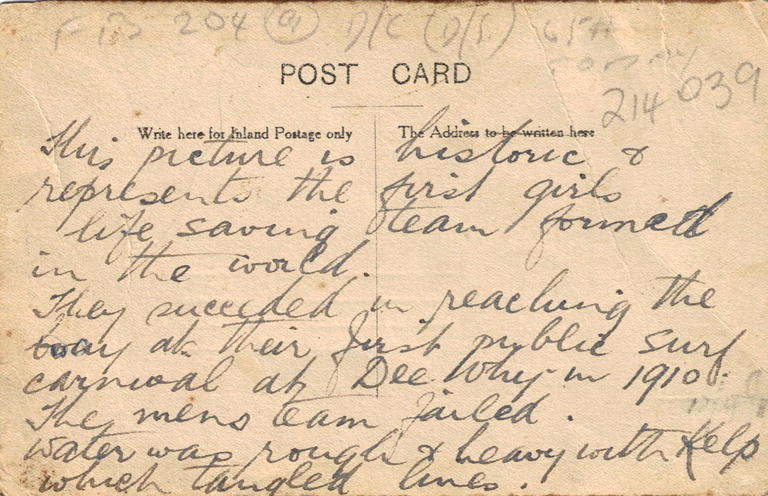
The three Hope sisters and Vera Lewis - one of the first in the world girls life-saving team, 1910; Women in at the beginning of Newport Surf Club - Annie Brennan, Elsie Brennan, Muriel Bulfin (Newport Hotel), Alto Corner, Olive Corner, Doris Hope, Francis Hope and Winn Hope - to name a few!
JUST IN TIME. BOAT RESCUE AT MANLY.
Yesterday afternoon two visitors to Manly had a lucky escape from drowning off the Ocean Beach. The men hired a pulling boat at Shelly Beach and went out about half a mile to fish. Later on big seas came in, and it appears the men in the boat became seasick. They were drifting helplessly about when they were noticed by Edward Sly and Jacob Eneko, the Manly fishermen, who got a boat and rowed out to their assistance. It was a hard pull with the big seas prevailing, but the rescuers reached the men Just in time, as the boat was dragging right on to Bombora, where It would inevitably have been swamped. The men, who were exhausted, were brought back in safety to the beach. JUST IN TIME. (1912, September 21). The Sun (Sydney, NSW : 1910 - 1954), p. 9 (FINAL SPORTING). Retrieved from http://nla.gov.au/nla.news-article228826857
FOUND DROWNED AT MANLY.
The body of a man apparently about 40 years of ago, was found early yesterday morning floating about a hundred yards off the beach near Fairy Bower Point, Manly. Edward Sly and Reginald Roberts, who made the discovery, brought the body ashore. Tho man had evidently been dead for some hours. The body was later identified by' his brother as that of Martin Kinnane, a railway employee. FOUND DROWNED AT MANLY. (1914, October 28).The Daily Telegraph (Sydney, NSW : 1883 - 1923), p. 10. Retrieved from http://nla.gov.au/nla.news-article239617296
First Local Surfboat
Manly Council was among the first to develop and appoint surf lifesavers when in 1903 they supported two fishermen, the brothers Charlie and Eddie Sly, to use their modified whaleboat to patrol Manly and its nearby beaches. From these humble beginnings, the modern Manly Life Saving Club developed.
George Sly is of course the father of the Shelly Beach Fairy Bower residents who were responsible for the advent of early fishing boats and whalers being used as rescue boats on Manly Beach, and over a hundred years of surfboat history since...See: Surf Bathing and the Advent of Manly’s First Surf Carnival - 1907
The Manly surf boat.
Arrangements have been completed for the construction of the surf boat to be used in rescue work in the breakers at Manly. The boat will be moored at Fairy Bower, and in order to ensure expedient launching in case of emergency an electric alarm is to be connected with the bathing, shed at the ocean beach. THE MANLY SURF BOAT. (1907, January 28). The Daily Telegraph (Sydney, NSW : 1883 - 1923), p. 9. Retrieved fromhttp://nla.gov.au/nla.news-article238019166
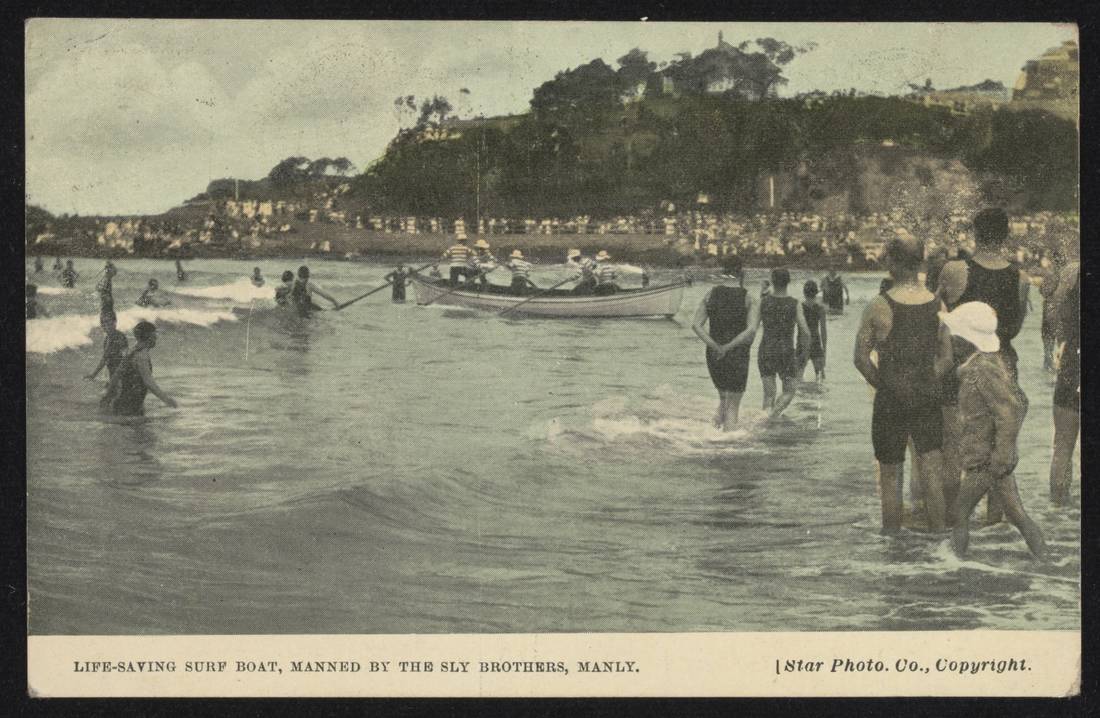
Postcard with a colourised photograph of 'LIFE-SAVING SURF BOAT, MANNED BY THE SLY BROTHERS, MANLY.'. It has a message on the reverse and it is dated 17 May 1907. from Josef Lebovic Gallery collection no. 1 courtesy National Museum of Australia.
THE MANLY SURF BOAT.
The surf boat for the patrol of the ocean beach at Manly has been built, and was yesterday taken to Manly, in charge of the Messrs. Sly. The new craft is a double-ender, pair oared, and is covered in for a couple of feet at each end. She 'rides' very lightly, and is a handsome craft. 'She is to be launched on Saturday, with ail flue ceremony. There is to be a surf-bathers' parade, with prizes for the best ladies' and gent's costume; ladies' surf wading race; display by 'Seagulls;' cigarette swimming race; and a display' by 'Happy' Eyre. The Manly Band will be in attendance. The committee have as-hon. secretaries Messrs A. Rosenthall and W. Fraser, and Mr. M. A Roberts as treasurer. THE MANLY SURF BOAT. (1907, March 13). Evening News (Sydney, NSW : 1869 - 1931), p. 6. Retrieved from http://nla.gov.au/nla.news-article115220621
THE MANLY SURF BOAT.
The Manly surf boat made its first public appearance in Manly on Wednesday evening. The craft, which was built to the order of the Manly Council at a cost of £31, was paraded through the streets on a waggon drawn by two horses. The boat is to be used for life saving purposes in the breakers at Manly, and will be manned by a crew under- the direction of the Brothers Sly. THE MANLY SURF BOAT. (1907, March 22). The Daily Telegraph (Sydney, NSW : 1883 - 1923), p. 8. Retrieved from http://nla.gov.au/nla.news-article238030337
The crowd for the launch of this first Manly Surfboat and the attendees at the Carnival it formed part of, was estimated at 12 thousand in some reports:
IN THE MANLY SURF
Launching the- New Boat
Most of Manly and a large portion of Sydney turned out yesterday afternoon to witness the launching of the new surf boat in the breakers on the ocean beach. A large number of people voyaged from the city and took up positions around a small roped-in space on the sands where the boat was. The day was perfect. The surf boat, a beautifully-constructed rower, whale-built, with a long steering sweep, was manned as under:—
Coxswain, C. Sly; stroke; Alfred Sly; No. 3, Joseph Sly; No. 2, Edward Sly; bow, N. Norgreen. She was launched quite easily, and slid into the water at the willing hands of half a score. The crew rowed her out over the big waves and away to sea with an ease which spoke well for their training and the build of the boat under them.
The Mayor of Manly (Alderman Alex.-Learmonth) was present with the aldermen, and the director of the carnival, Commander Roberts, was assisted by Messrs. Fred Grey, Quirk, and some others. The judges were Alderman E. W. Quirk.- Mr. W. Tonge (secretary), and Mr. Fraser. (assistant secretary); beach directors, Messrs; Fraser, Ellison, and Arthur Rosenthal. The Manly Brass Band, gave its services gratis, and- played during the afternoon. . ' . The Mayor spoke a few words in honour of the occasion. 'They had met to celebrate a very important occasion, namely, the ceremony of launching the surfboat. It was a much-talked-of boat, and some people had blamed the local council for having used the public money to build it, but he assured, them that such was not the case. Even if, however, the council had done so, and one life had been saved by its means, that would have fully compensated for the expense. But the public had voluntarily subscribed the cost.'
The Attorney-General (Mr. Wade) spoke at some length on the subject of the advancement of the suburb. He recognised the Importance of the ceremony of launching the boat. It would be a means, should the occasion ever arise, of saving lives of persons in danger. Surf-bathing at Manly had become a success, and it was so largely indulged in that the place was becoming celebrated for it and not only hundreds but thousands were attracted to the suburb for that reason alone. Surf -bathing deserved every support, and he was happy to say was receiving it The surf- boat was manned by a competent crew, and was always ready to go to the rescue of bathers and others in peril. There was much satisfaction to be derived from this fact alone, which was a matter inspiring confidence in the timid bather. IN THE MANLY SURF (1907, March 24). The Sunday Sun (Sydney, NSW : 1903 - 1910), p. 1. Retrieved from http://nla.gov.au/nla.news-article227141932
Launching the Surf Boat at Manly, March 23.
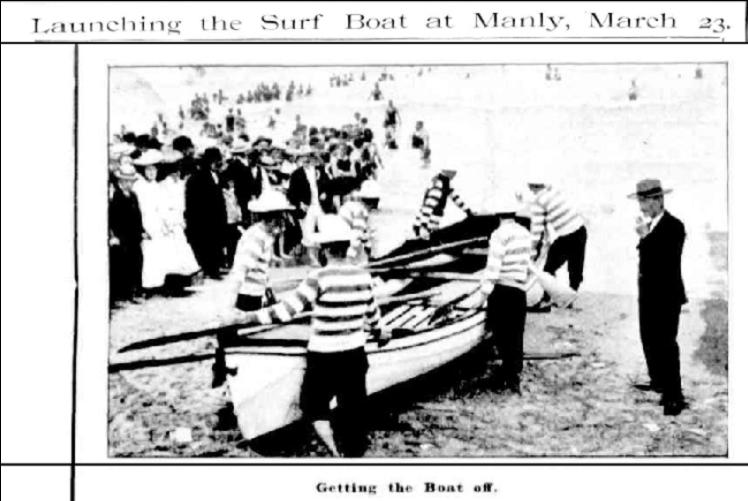
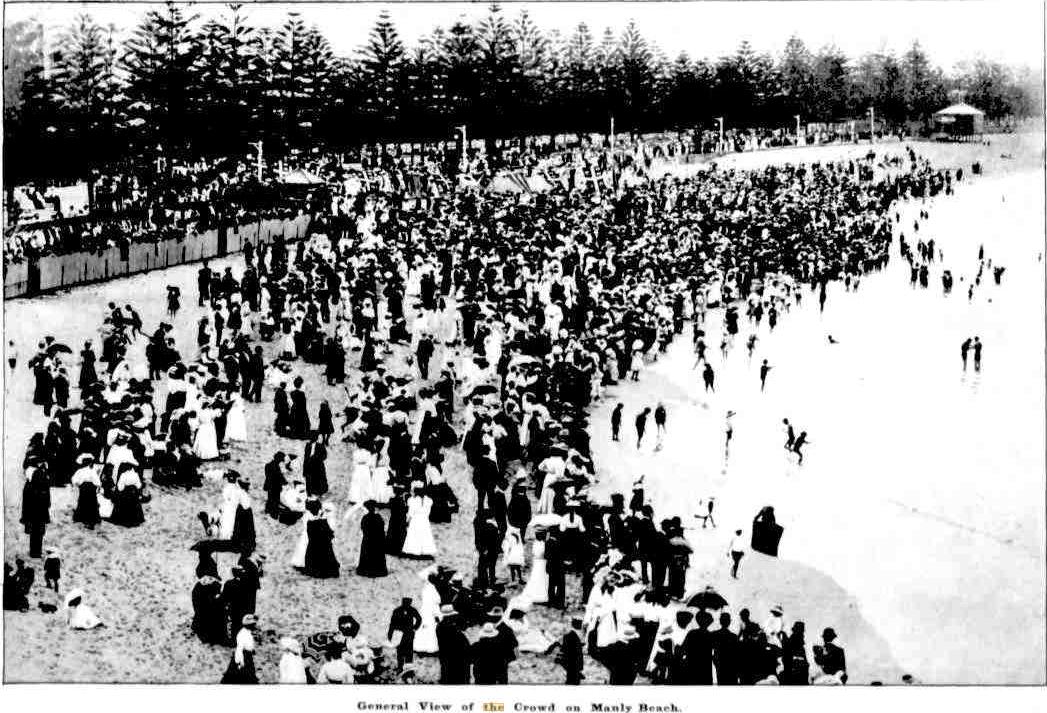
General View of the Crowd on Manly Beach.
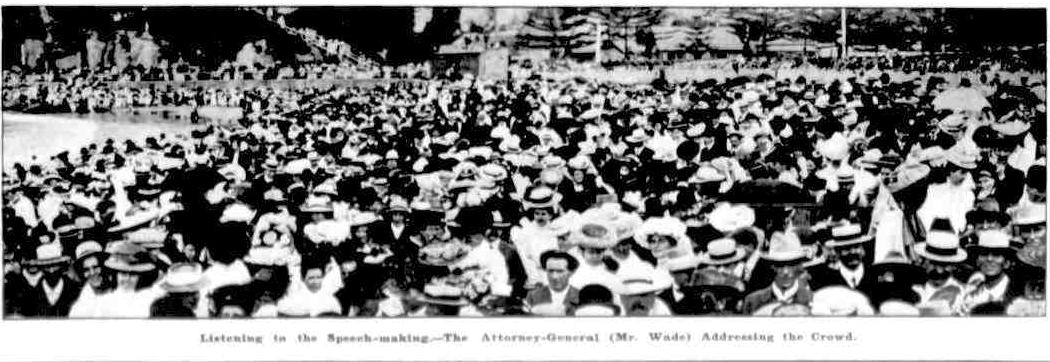
Listening to the speech-making - The Attorney General (Mr. Wade) Addressing the Crowd Launching the Surf Boat at Manly, March 23. (1907, March 27).Australian Town and Country Journal (NSW : 1870 - 1907), p. 20. Retrieved fromhttp://nla.gov.au/nla.news-article71590669
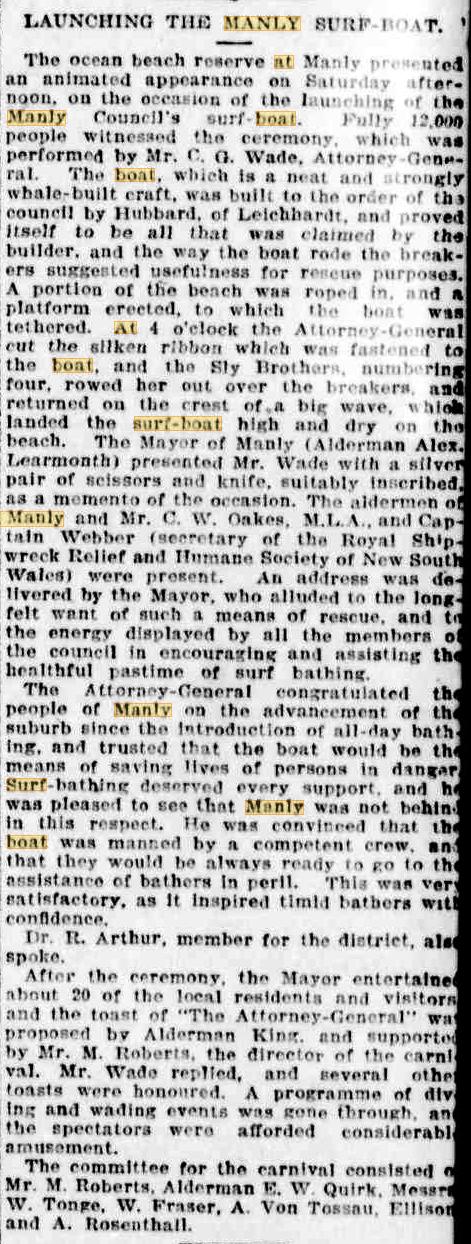
DANGERS OF SURF-BATHING. (1907, March 25). The Sydney Morning Herald (NSW : 1842 - 1954), p. 7. Retrieved fromhttp://nla.gov.au/nla.news-article14858484
MANLY SURF CARNIVAL.
There was a big crowd at Manly, on Saturday afternoon to witness the launching of the surf boat. The Mayor Alderman Learmonth presented Mr. C. G. Wade with a pair of silver scissors, and asked him to set the boat on its life of-usefulness. The Attorney-General made a characteristic speech, in which he commend ed the Manlyites on the way they had brought surf bathing to such a pitch of excellence. Amid hearty cheers, the boat was run down the beach, manned by the Sly brothers, and safely taken, through the breakers, after encountering three big rollers, that sent the spray over the new boat. Later on, it was brought back to the beach in a way that proved that those in charge were equal to any emergency. The enormous crowd of spectators greatly hampered the committee in its work in getting through the programme of events, but it was carried out with the result that the Parade for Gentlemen was won by "The Knight of the Bath'' J. Harris, "Geo. H. Reid," 2; "Johnson Fishing for Squires," 3. The Ladies' Parade was won by Miss G. Morgan; with Miss K. Monks second, and Miss de Plater third.
Miss J. Sly won the Umbrella Race; and the Cigarette-smoking and Wading events resulted, A. E. Luker, 1; G. Tartakover,2. Messrs.
W. Fraser and W. Tonge (hon. secretaries), M.A. Roberts, E. von Tossau, E.W. Quirk, J. Ellison, Croft and A. Rosenthall worked hard to make the programme run smoothly. During the afternoon, diving dis-plays from a specially erected platform out in the'surf were given by the Seagull Club and the Rubiana Club, and all the time the surf was full of bathers. The Manly Band, in charge of Mr. Hawken. by their performances added to the enjoyment of the afternoon. An adjournment was made to Byrnes' New Brighton Hotel, where the Mayor of Manly pro-posed the health of Mr. Wade, who suitably re-sponded, and complimented the Manlyites on the day's programme. He said that what he had seen that day was a credit to Manly's self-reliance and progress. The other speakers were Alderman King, Mr. M. A. Roberts, Dr. Arthur and Mr. Oakes, Ms.L.A.MANLY SURF CARNIVAL (1907, March 25).Evening News (Sydney, NSW : 1869 - 1931), p. 3. Retrieved from http://nla.gov.au/nla.news-article115219703
MANLY SURF CARNIVAL
The water carnival was held last Saturday at Manly, Sydney Harbour and was a great success. It was organised for the purpose of launching the recently-built surf boat. which, under the control of the Messrs. Sly Brothers, will patrol the water fronting the Ocean Beach during the bathing season. Many thousands of people were present. During the afternoon "Appy Eyre." the present beach custodian, and Mr. Von Tossau gave a display of life-saving. Eyre entering the water and effeected a rescue, after which the usual methods of rescue were adopted. The Seagull and Messrs Chambers. Lane, Rosenthall, Wickham. and Trielonel contributed a diving display from a pedestal erected in the sea. The Manly borough band played selections during the after noon. Results of competitions were: -
Men's Parade.-Knight of the Bath; 1 J. Hargraves 2. Fishing for Squires, ' 3.
Ladies Parade.-Miss G. Morgan, 1; Miss K. Marks 2. Miss de Plreter. 3.
Crowd on the beach watching the Sports.
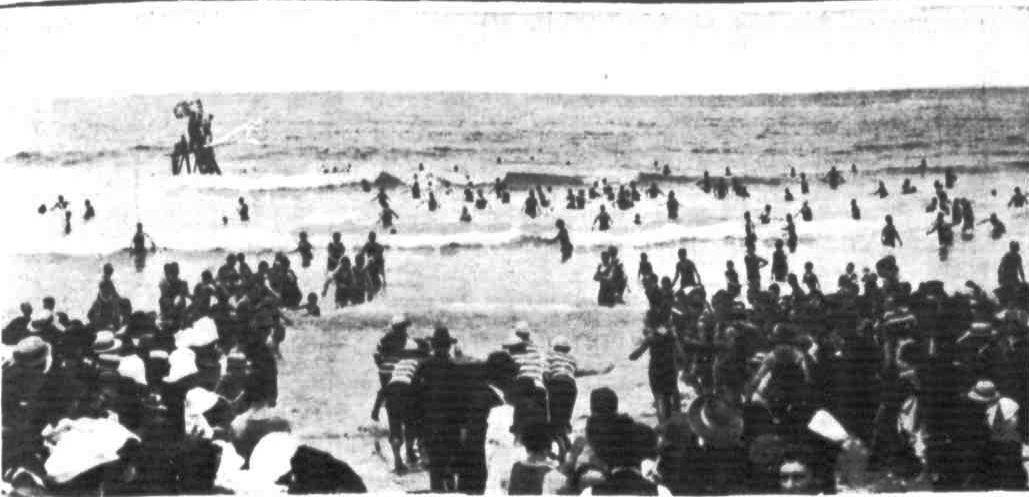
LAUNCH OF THE LIFEBOAT.
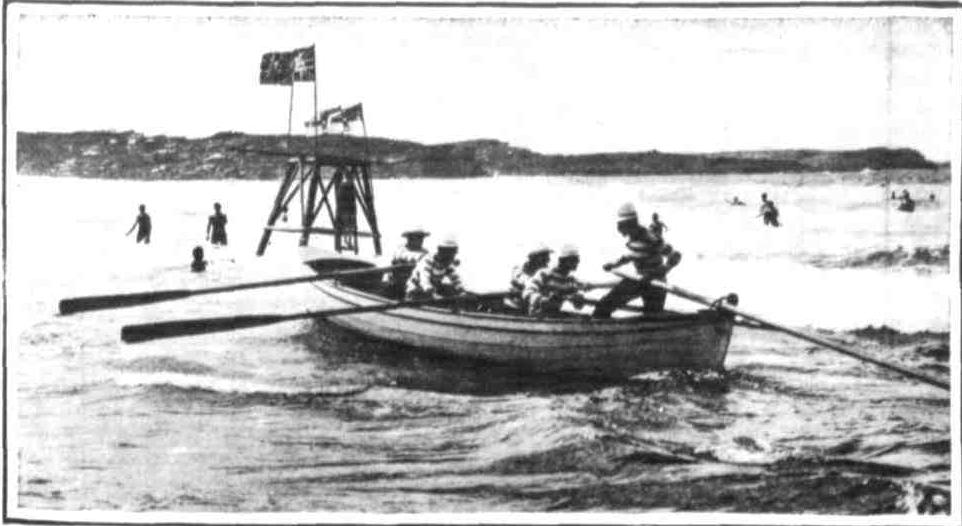
SURF-BOAT ROWED ALONG THE BEACH BY SLY BROTHERS, LOCAL FISHERMEN.

SURF-BOAT PULLING OUT TO SEA THROUGH THE BREAKERS.
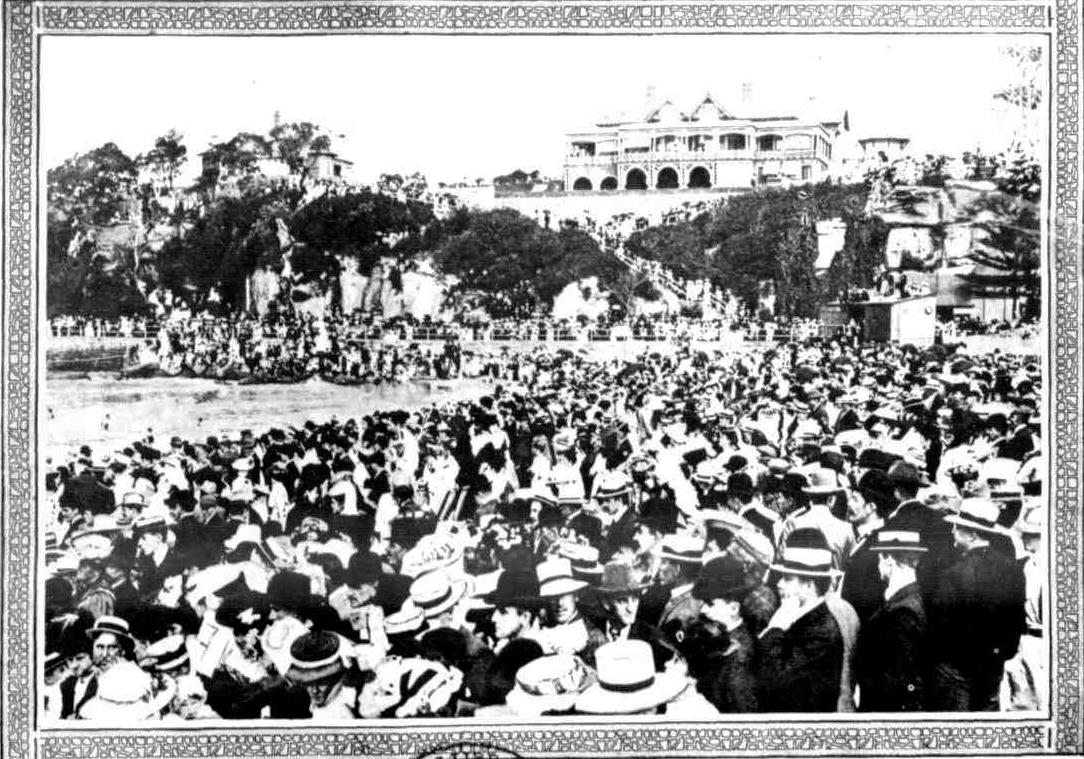
CROWD ON THE BEACH WATCHING THE SPORTS.
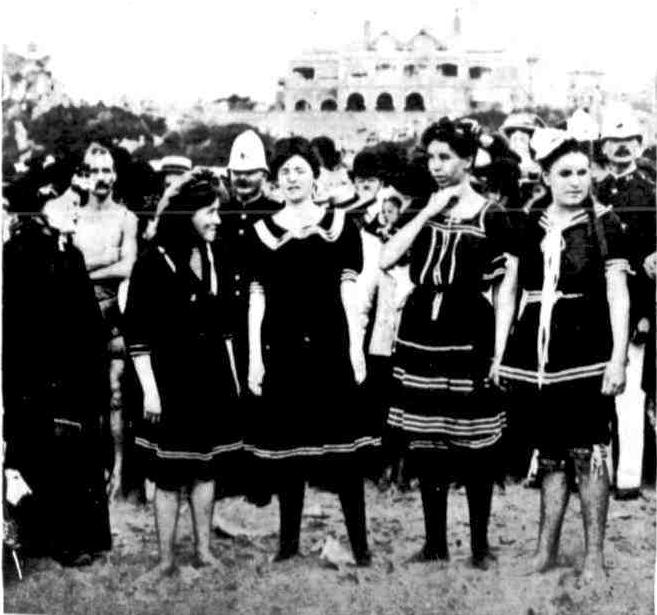
GROUP of LADY COMPETITORS FOR BEST BATHING COSTUME.
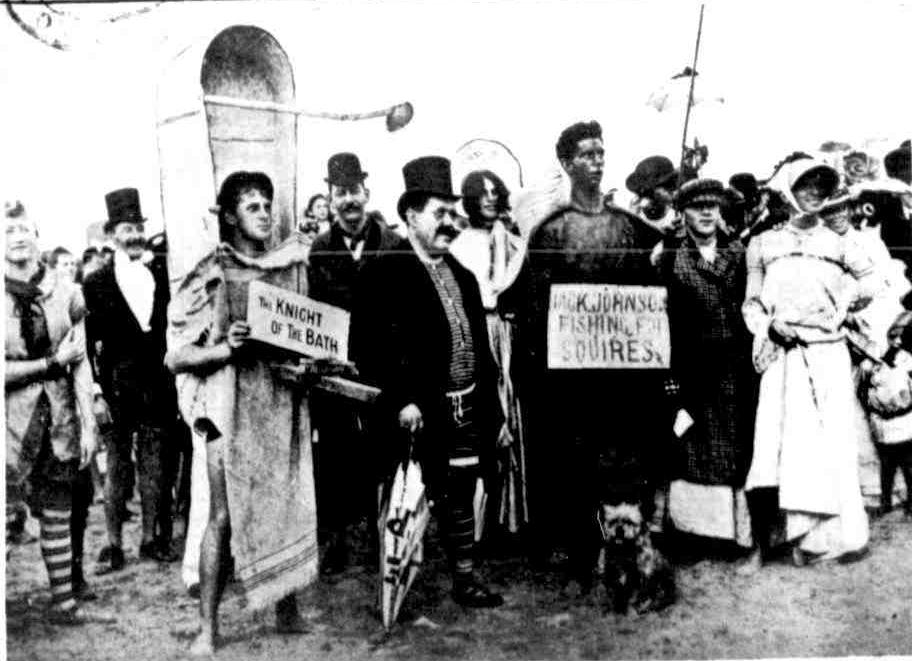
PARADE OF SURF-BATHERS. MANLY (Sydney) SURF CARNIVAL, HELD ON MARCH 23 MANLY SURF CARNIVAL. (1907, March 30). The Australasian (Melbourne, Vic. : 1864 - 1946), p. 27. Retrieved from http://nla.gov.au/nla.news-article139334685
This was preceded by a lot of the same prior to the advent and rise and rise of surf life saving. This misspelling is likely to refer to the Sly family members:
A SAD BOATING FATALITY. THREE YOUTHS DROWNED.
SYDNEY, November 11.
A sad boating fatality occurred yesterday afternoon outside Port Jackson Heads. Four youths, named Willis Hall, 16, Arthur Pecke, 15, Wellington Vitely, 18, and Bulgin, 18, left Rushcutter's Bay in an eighteen-foot boat. They sailed out through the Heads to Cabbage Tree Bay, off Manly, and reached that place safely. Having had lunch, they started to return, but, when attempting to jibe, a squall struck tbe boat, capsizing it. Hall clambered on to the keel, while Pecke struck out for shore, 500 yards distant, partially undressing in the water. When he was about half way to the land, however, the current appears to have been too powerful for him, and he turned round and headed for the boat, but when about twelve yards off he sank. Hall, being unable to swim, did not dare to go to his assistance. Vitely and Bulgin disappeared immediately the boat upset.
Two fishermen named Ply, who witnessed the occurrence, pulled out from the shore and rescued young Hall in a most distressed condition. None of the bodies have yet been recovered. A SAD BOATING FATALITY. (1895, November 12). The West Australian (Perth, WA : 1879 - 1954), p. 5. Retrieved from http://nla.gov.au/nla.news-article4549467
'HAPPY' EYRE. THE MANLY LIFE SAVER. AN INTERESTING INTERVIEW. SURF BATHING AND ITS DANGERS.
There is no man more in the public eye at the present time than Edward, better known as ''Happy,' Eyre, the official who keeps an eye on the destinies of surf bathers at Manly, from 5 a.m. to 5 p.m. daily. No man knows more about Manly Beach than he, for his experience has been gained battling with the breakers in two capacities for three years past.
Eyre, who is a fine, upstanding, athletic man, in his 37th year, having been born in Auckland, New Zealand, in 1869, has saved no fewer than 46 persons from drowning in the breakers at Manly in two years, and it is pretty certain that if the impetuous foolishness of bathers who come from the city and suburbs is not restrained, he will soon top tie half century, and be well on the way for a hundred. 'Happy' has some very decided opinions, based upon experience, regarding surf bathing at Manly. Those who got into trouble were visitors who did not know the beach. He had a few 'pointers' to give, and if they were recollected the risk was practically nil. 'The danger,' said Eyre, to an ''Evening News' reporter, 'lies between the flood and the ebb tide, and the dangerous spot is Just opposite the ladies' dressing reserve. All the fatal accidents have happened at this place, and I had one of the hardest struggles of my life there, when I was in for three quarters of an hour after a Boy. You 'see, the northerly current sweeps in and washes out a deep channel and leaves large holes, especially in north-east weather. Going into one of these holes is just like stepping off a table on to a floor of a room. At low water, it; would be about 20 yards out.'
What is the result when a bather gets .into a hole?
Well, the current drags him from the hips — at least, that's my experience — and instead of 'keeping his block,' and trying to swim across where he would strike one of the banks, the bather will try to swim straight into the beach. That's fatal to his chance, at once.'
'And then you come in?'
'Yea,'
'Is there a suction in the current?'
'Yes, there is; that keeps dragging the bather down. I tell you the Sydney bathers should be warned, and warned very straight, not to go in too far. Up to the first breaker is quite far enough. When they get out' too far, then they are in trouble. Those who are with them see it, and they go to their assistance, and they can't get back. Then the whole lot are in danger. That's what causes all the trouble. I tell you. It is the people who come to Manly who have narrow escapes. The Manly bathers know the beach, and consequently know what to do.'
'What is best to be done when the bather is in danger?'
'Well, when a bather does get into difficulties, all he wants to do is to keep his head, and we'll get him.'
'Happy' was quite confident in that respect, and his record is a sufficient warranty for it .
'How do I work the life-saving? Well, I have a belt and about 200 yards of ½ inch line. I slip into the belt in a minute, hook it over my shoulders, and go out. And, while I am on that subject, I may say that the going out is not the worst — it is the coming in. Last Sunday I got a terrible doing with the people pulling the line in. You know when about 25 of them are hauling at the line, they pull it in so quickly that I go right underneath. On Sunday they pulled me under, and away from the bather three times, and I had to go back each time and get him.' 'Did I swallow any salt water? lots of it.'
HAS SAVED 46 LIVES.
'What is the toughest time I ever had* -'Well, it -was last February twelve months, when I went In after young Mulqueeny. I was in for three-quarters of an hour in a big nor'-easter. The line got tangled up with seaweed. They managed to drag me in; but I didn't get the boy. Poor chap, he was gone. Have I anything to suggest to improve the beach; Well, I think the best thing to do is to leave it as it is. If any buoys, or anything of that kind, were put in the water the bathers would only swim out to them, and then they would not be able to get back. One thing I would like to say is this, A lot of the local bathers, who follow their way about, go in too far and they entice others to do the same. We save the women ...
do in other 'parts of the world. The women, too, stay in too long. They, stop in. three times as long as the men.' - : 'About night bathing? Oh! I don't approve ! of that. There is too much risk in it. When the beach is dirty, and it keeps- -working, these people will walk right into trouble. I am not on- duty at the beach after 5 p.m.; but I often walk down to see how things- are. ? Am I the official of the Life-saving Society? Well, not exactly. I am paid by the bathers by voluntary subscription, and the money has not been coming in too well this last month. No; I have never got a medal, and although I have been instrumental in saving the lives of 46 persons, in only one case have I ever received anything. That was from Mrs. Roberts and her daughter, and Miss Fox, whom I saved. Mrs. Roberts sent me a sideboard, and her daughter gave me a little present. You have heard I have been rather shabbily treated by some? So I have, and one-was only the other day. But I don’t want to say, anything more about: that. I have been handsomely treated by the' Manly ? residents, however. They gave me a benefit quite recently.' ?
A FOOTBALL ENTHUSIAST
Eyre, who is a painter by trade, is, like all New Zealanders, a football enthusiast. After coming to Sydney he played with the old Zealandia Club, then With the Pirates, and lastly with the Glebe- in every case he was in the forward division. Usually speaking, 'Happy' has 'followed wharf labouring' for a living; but he has also done a little painting. He drifted into the life-saving business by accident. Having gone to Manly some three or four years ago he became associated with the Slys in fishing, and then a proposal was made to have a surf boat from 6 to 8 a.m. for the protection of bathers. The boat's crew, four in number, of whom ‘Happy' was one, were to 'receive £10 a month; but after a time it was not supported. Mr.D. Hogan, the council clerk, who started that movement which was called the 'Manly Life-saving Association, substituted the line and belt, and 'Happy' was appointed to the position which he has filled so well.
'Happy's' list of lives saved is actually 47, for a couple of years ago he snatched a man from 'death at the AUN. Company's Wharf, where he used to work. The man was intoxicated, and fell into the harbour at midnight. ,...
his remarks regarding what bathers should and should: .not do are spoken in their own interests. Surf bathing, he considers, is a splendid thing, and all that is needed to make it still more popular is for bathers to recognise that foolhardiness may cost them their lives, and that just as much pleasure may be obtained by keeping in as by going out, and without the risk.
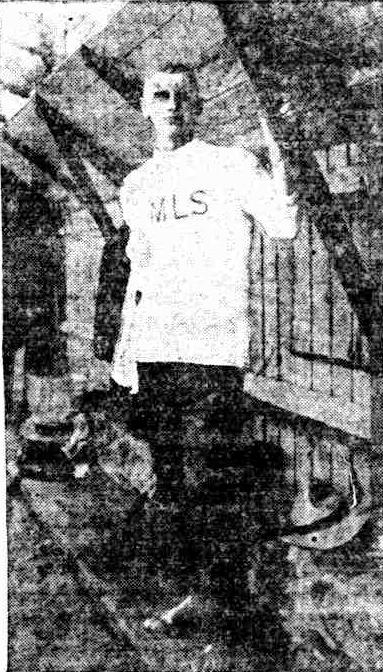
'Happy' Eyre. (From a recent photo.)
"HAPPY" EYRE. (1906, March 15). Evening News (Sydney, NSW : 1869 - 1931), p. 7. Retrieved from http://nla.gov.au/nla.news-article114226875
Despite the 1903 flop of installing a surfboat at Manly, the idea was renewed an a brand new open whaler built for the first Manly surfboat crew:
PROPOSED SURF BATHERS' CLUB AT MANLY.
Mr. A. W. Relph writes: — Surf bathing has become such a popular pastime at Manly that even the most prejudiced persons will admit that Manly as a. suburb owes its wonderful progress more to that fact than any other, and the great majority of surf bathers are not by any means permanent residents of Manly.; but are mostly visitors from the city, other suburbs, and the country. Therefore, Manly, as a suburb, owes something to the surf bathers, and in this probably all the reasonable minded residents and owners of property in Manly will agree.
The Municipal Council of Manly, as the representatives' of the residents and property owners, have to some extent recognised this fact, and have built some conveniences for the accommodation of the bathers; yet hitherto that accommodation has been of a very meagre description, and has not been equal to public requirements, and the council has not yet awakened to the true extent of its own responsibility to the public, or even to the advantages that will accrue to itself by grappling seriously with this question and offering proper inducements and attractions to their visitors. Yet the council cannot altogether be blamed in this matter, for the surf bathers have done very little indeed, if anything, to help them selves, and the responsibility of organising the surf bathers and improving their lot lies more with themselves than wiih any other body. And, indeed, it is wonderful that surf bathing has become such a popular pastime when one realises what difficulties have attended it in the past, and how little the bathers them selves have contributed towards its success by means of any organised effort. Surf bathing is the healthiest sport of the present day. - All who have tried it assert that there is no comparison between bathing in calm water or fresh water and bathing in the open- surf. I have known very many people, who opposed surf bathing for various reasons, and were strongly prejudiced against it, and who, when prevailed on to try it only once, became fast converts, and thenceforth loudest in its praises. Swimming is encouraged else where by the erection of baths at the public expense, athletics by the erection of proper grounds and of gymnasiums. Therefore, this pastime of surf bathing, which boats all other forms of exercise, should be properly encouraged and organised, if only with the object of improving the public health. My chief object in writing this letter is to propose that the surf bathers themselves should unite together, and form a club, with the object of organising the pastime, of freeing it from certain, abuses, of assisting the council to control the bathers and their dress, of assisting- towards the erection of suitable dressing-rooms and conveniences, and generally controlling the bathers and the public lookers on, and of devising and putting into practice a means of rendering, surf bathing safe, and also a speedy means of saving lives when in danger. Hitherto the bathers have not been called, upon for any regular contribution. Sometimes a box has been taken round, and subscriptions nave been invited; but though most . of the bathers are only too willing to contribute something towards their betterment, few people will subscribe when there is no recognised control' over the money and its method of collection. Two thousand bathers- (and this is only half the number of regular bathers), forming a club with a subscription of 2s . 6d- per annum, would control the spending of £250 per annum for the benefit of surf bathing every year; and this is but a minor matter to the advantages that would accrue to the bathers in other directions as a result of proper organisation and control. Last season the pastime became so popular with the public that thousands of people used to journey to Manly just to look on at the bathers. Many of the people, through lack of proper control, used to encroach on the bathers reserves, or what should be recognised as reserves, and no one more than the bather themselves resented this encroachment. All regular bathers (and there are thousands) would welcome a proper system of control and organisation, so that there would be nothing about the pastime to offend anybody. All would welcome an efficient means of saving life, and the adoption of conditions for the general safety of the bathers. All would welcome proper bathing sheds and accommodation. But all these will only come when the surf bathers help themselves; and it is quite time they commenced. PROPOSED SURF BATHERS' CLUB AT MANLY. (1907, July 4). Evening News (Sydney, NSW : 1869 - 1931), p. 2. Retrieved from http://nla.gov.au/nla.news-article112643191
The gentleman in white with white hat in the photograph below must be a Sly family member.
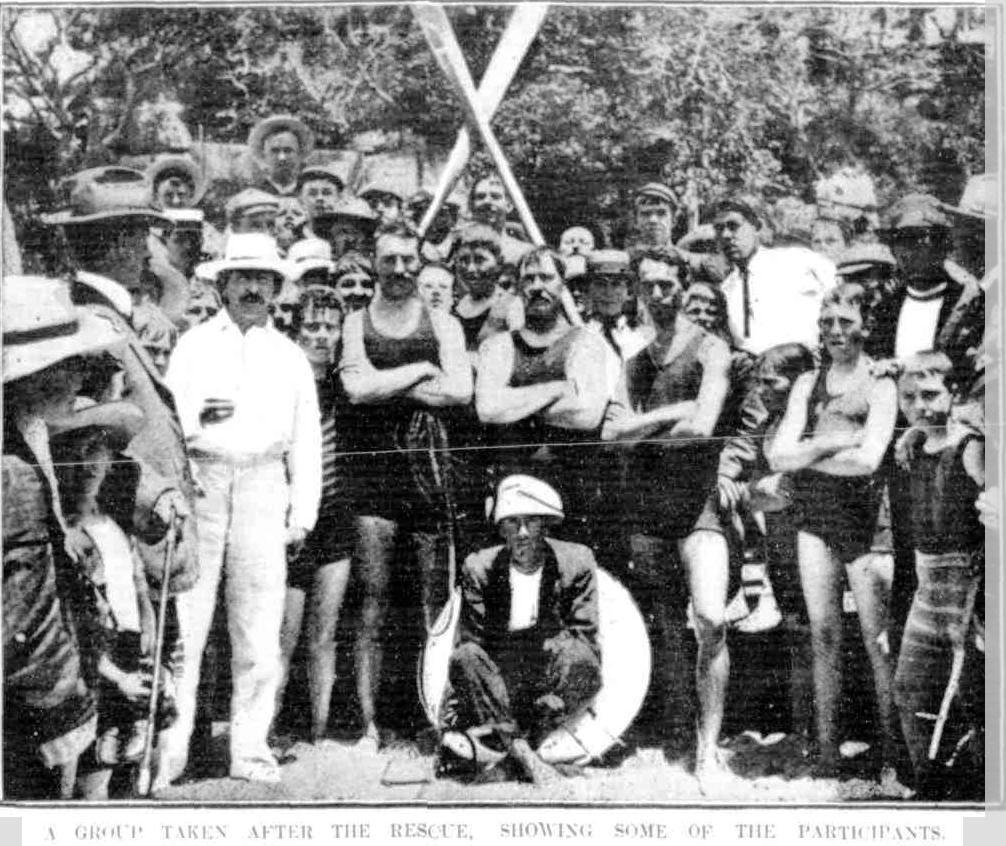
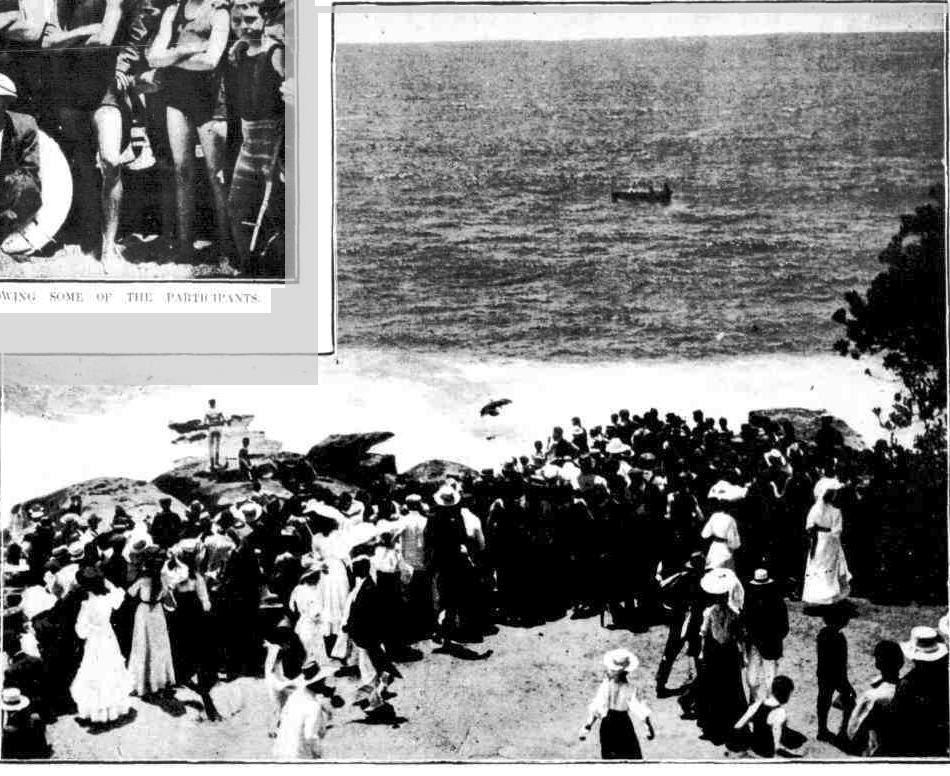
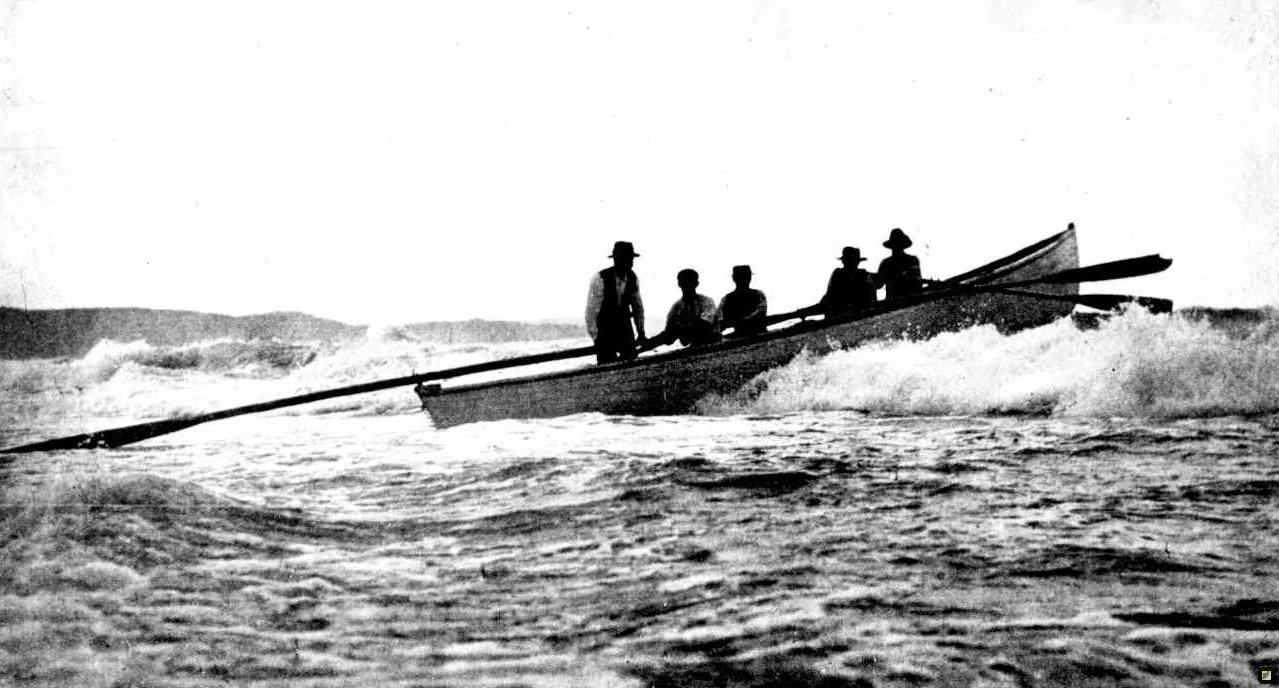
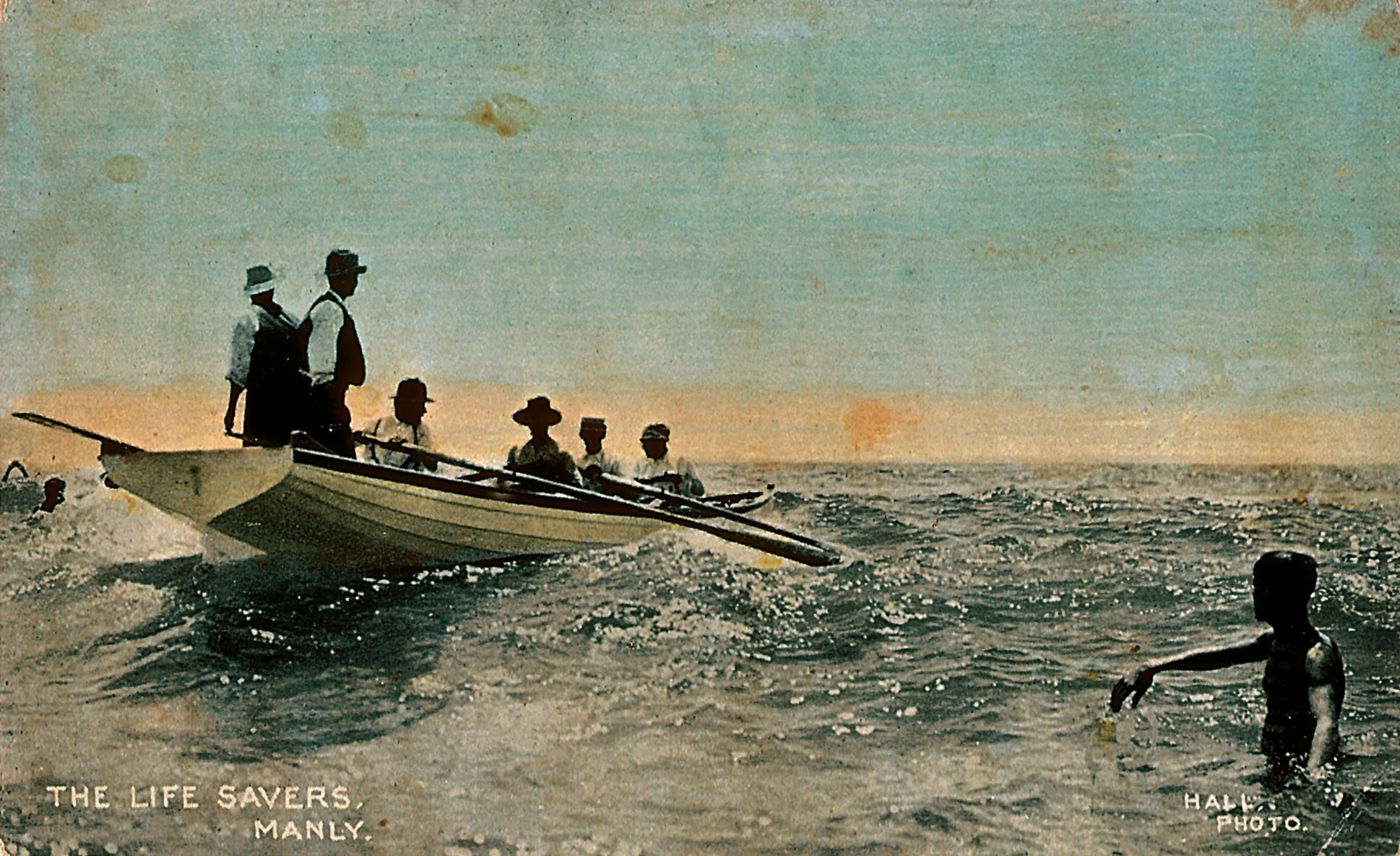
This photographic postcard is titled ‘The Lifesavers, Manly’, and is likely referring to the Sly brothers. The Sly brothers were fishermen from Fairy Bower, who, in 1903, received funding from Manly Council to build a modified whaleboat to patrol Manly and nearby beaches. The image used for this postcard was taken by William Hall photographic studio, Sydney. The photo was taken in 1903. Object number: 00001991, courtesy the Australian National Maritime Museum’s William J Hall collection.
The Fish And Fishing: Masses Of Fish
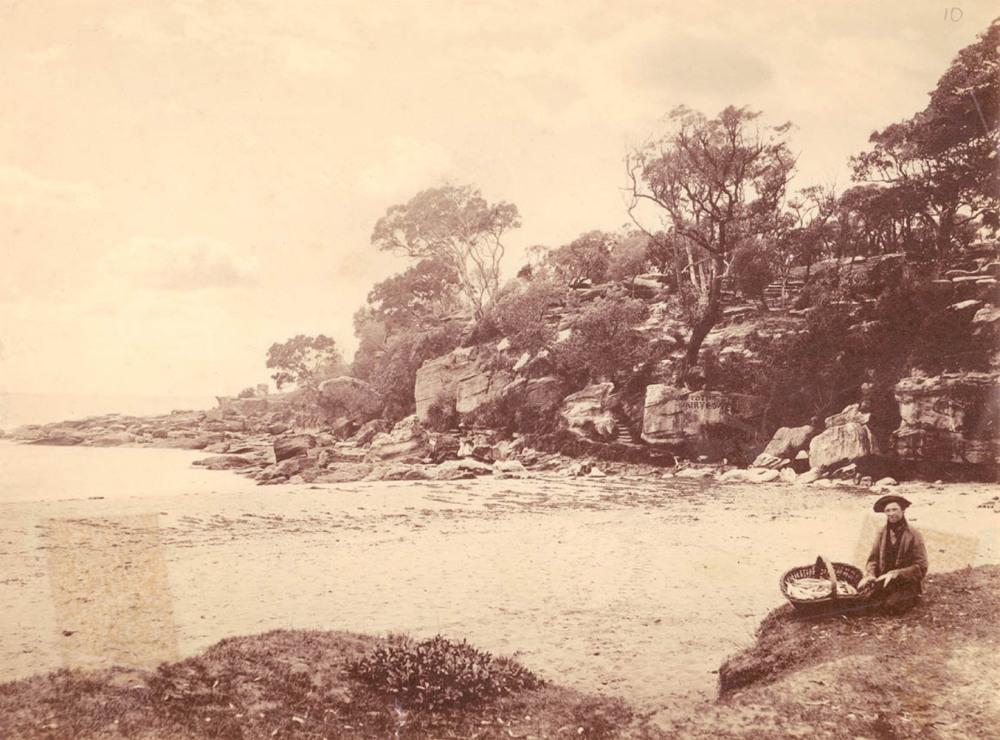
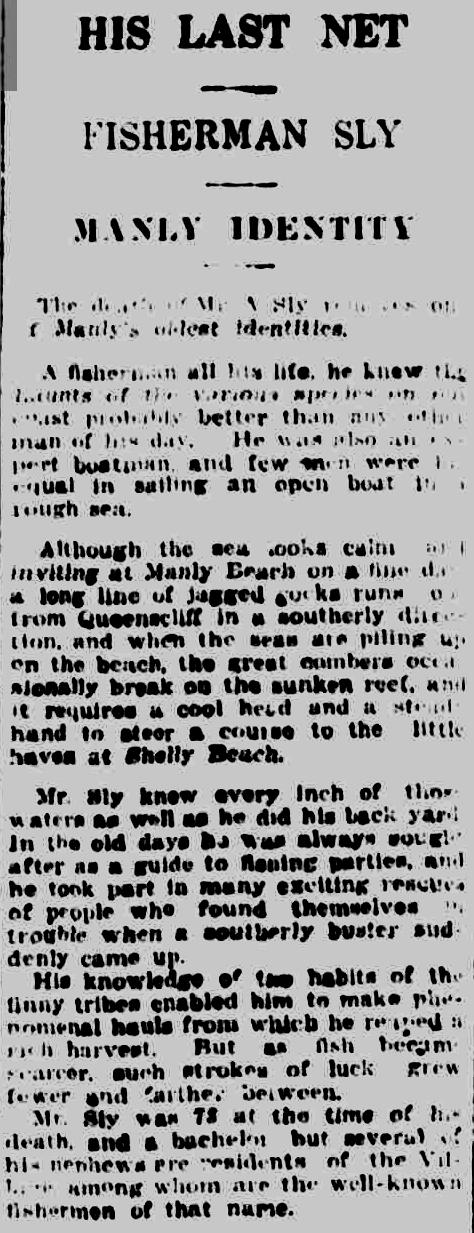
Division of the WATER POLICE COURT.
George Sly, 51, fisherman, for being drunk and disorderly on the Esplanade, Manly, was fined 20s, or seven days. On a second charge of assaulting Constable Miller in the execution of his duty, a further fine of £3 was inflicted, with the alternative of two months' imprisonment. The sentences to be cumulative. POLICE. (1891, April 3). The Sydney Morning Herald (NSW : 1842 - 1954), p. 7. Retrieved from http://nla.gov.au/nla.news-article13819913
Sergeant Kenny reported at the Coroner's Court, on Tuesday morning, (says the Echo), that a woman named Jane Whaley, 63 years of age, the wife of John Whaley, laborer, residing at Manly, was found drowned in the water near the Manly Pier, at seven o'clock on Tuesday morning, by a seaman named Thomas Walker, on board the Fairlight (s.). Deceased was last seen alive about ten p m. on the 3rd instant, by a George Sly. There were no marks of violence on the body, which has not been, however, examined by a medical man, and it now lies, awaiting an inquest, at the residence of the deceased's husband. MISCELLANEOUS ITEMS. (1880, May 6). The Maitland Mercury and Hunter River General Advertiser (NSW : 1843 - 1893), p. 2. Retrieved from http://nla.gov.au/nla.news-article18949820
MYSTERIOUS DEATH AT MANLY.
An inquest was held by Mr. Shiell, City Coroner, at the Ivanhoe Park Hotel, Manly, yesterday into the cause of the death of Mrs. Janet Whalay, whose body was found floating in the sea on Tuesday morning by a sailor employed on board the steamer Fail-light. The jury having viewed the body, which had been taken to the residence of deceased's husband, the following evidence was given : — John Whalay, husband of deceased, stated that he was a labourer, residing at Manly. Deceased was 63 years of age, was a native of New South Wales, and had left a family of 12 sons and daughters living. Last saw deceased alive on Monday evening, between half-past 8 and 9, in a street at the back of the Pier Hotel. She did not appear to be altogether sober, and witness did not then speak to her. She was in the habit of drinking to excess very often. Next morning she was taken home dead. She was in the habit of frequently staying away all night with some of her sons-in-law who lived about Manly, and her absence on Monday night did not cause witness to lie alarmed for her safety.
George Sly, a fisherman, living at Manly, deposed that deceased was his mother-in-law. At about half-past 8 or 9 o'clock, he saw her at the house of a Mrs. Lewis, at Manly. She was very intoxicated at the time. Occasionally she was "given to habits of drunkenness”. That was the last witness saw of her. To a Juryman: saw her about half-past 7 the same night at the Pier Hotel.
Mary Lewis, a married woman, living at Manly, stated that she had known Mrs. Whalay for a long time. Witness lived about ten minutes' walk from the pier. Deceased was at witness' house on Monday. She left about 5 o'clock. Saw her about 8 at the Pier Hotel. John Whalay was drunk, lying in the street opposite witness's house. Witness was quite sober that evening, and went to bed about half-past 8. Witness and George Sly took deceased from the Pier Hotel and put her in the street by the side of her husband. Afterwards witness heard them quarrelling. George Fly remained some time. He also was drunk, hut' not so much so as she had seen him. Witness did not sec them leave. The last time slits saw George Sly that evening he was with Whalay and his wife in front of witness's house, they were all arguing together. To a juryman : Would swear she was not at the Pier Hotel about It o'clock. Witness did not go to the Hotel with deceased, but found her there with George Sly. Was only there once that night. George Sly, recalled, said he did not go to the hotel with Mrs. Whalay. She came in the bar while witness was there. That was about 7 or half-past. They had one drink together. She had tonic water and witness had whisky. She then appeared intoxicated, but did not want assistance. After helping Mrs. Lewis to take deceased home, witness went back to the hotel about 10. Would swear he did not go there until 11 that night. Mr. Crook, one of the jurors, and landlord of the Pier Hotel, said he could swear he did.
Witness continued : Left Whalay and his wife sitting on the verandah at Mrs. Lewis' house.
Thomas Walker, a deck-hand on board the Fairlight, proved the finding of deceased's body on Monday morning drifting close to the beach on life eastern side of the Manly pier. The Fairlight was alongside the pier all Monday night. Witness was on hoard, and heard no noise. The body was in the wash, about 30 yards from the pier. Dr. Halkett stated that he had examined the body and found no marks of violence, except on the left side of the face, where there was a mark or abrasion, evidently inflicted after death, and a few abrasions on the right, side, of her face inflicted during life. None of those had anything to do with the cause of death, which was asphyxia from drowning. The jury, having consulted, returned a verdict of found drowned, but there was no evidence to show how she became drowned. MYSTERIOUS DEATH AT MANLY. (1880, May 6). The Sydney Daily Telegraph (NSW : 1879 -1883), p. 3. Retrieved from http://nla.gov.au/nla.news-article238479840
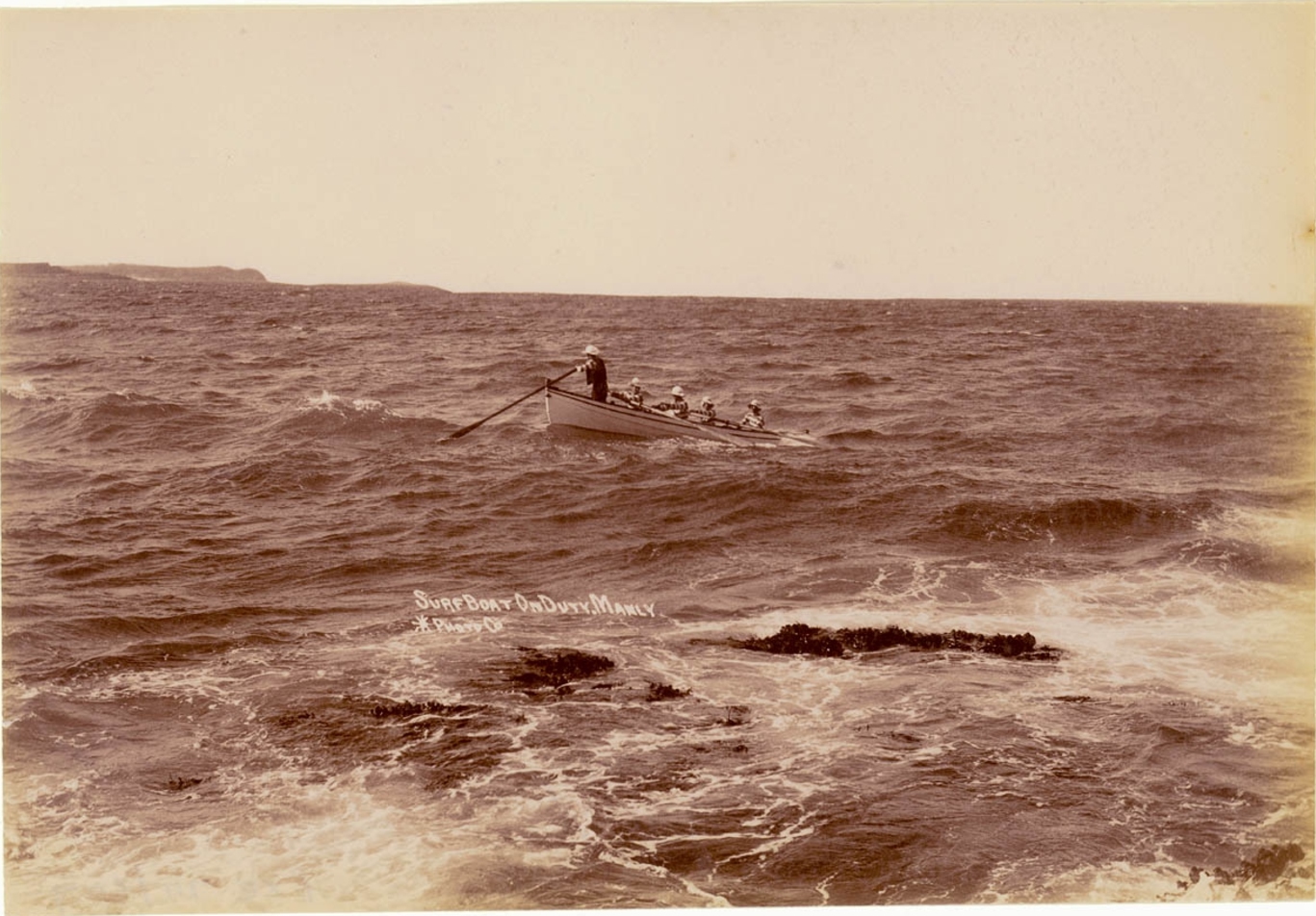
Extras And References
Manly Regatta, On January 19, 1907.
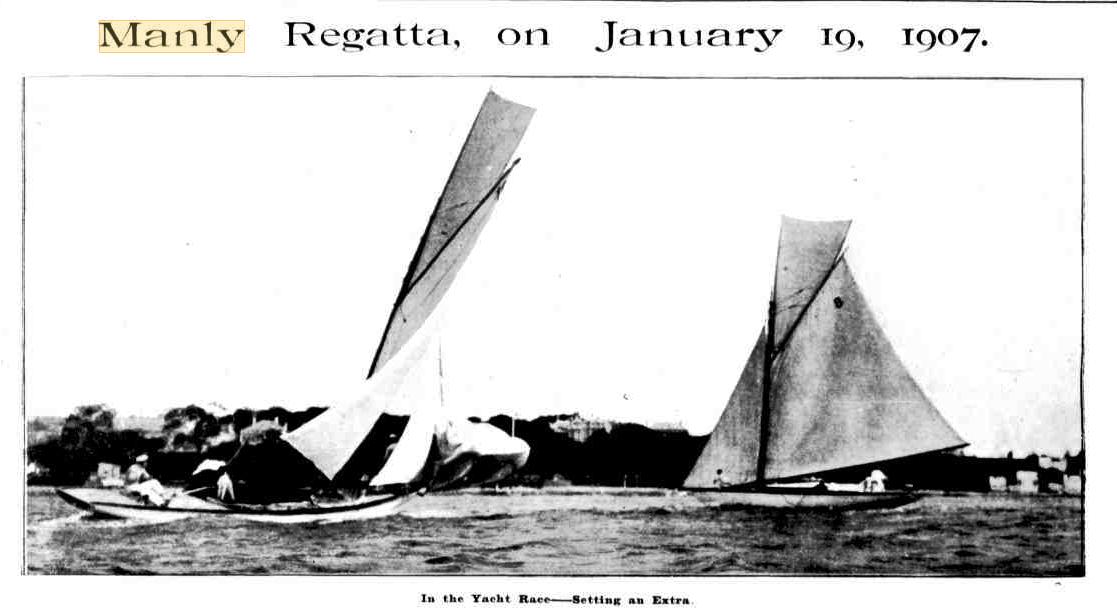
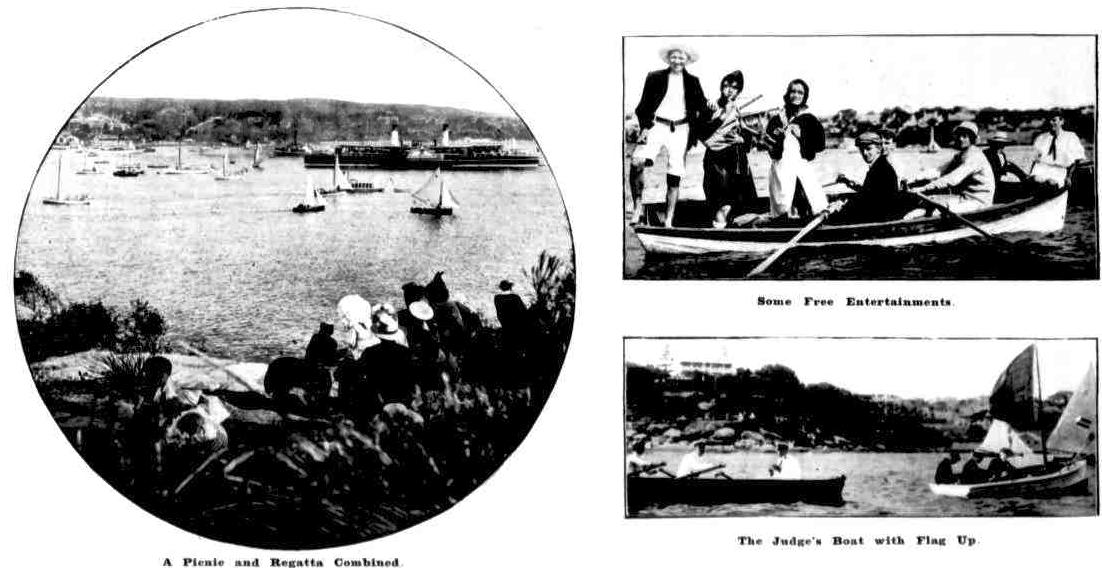
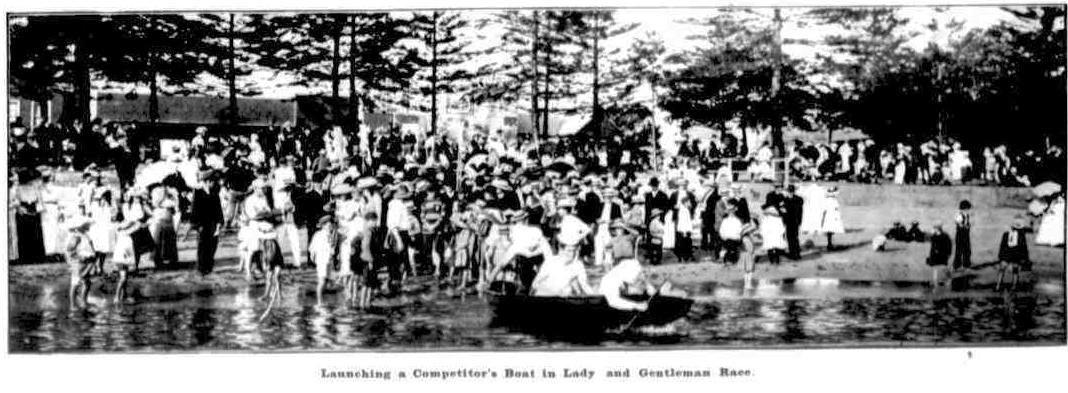
.jpg?timestamp=1580776348922)
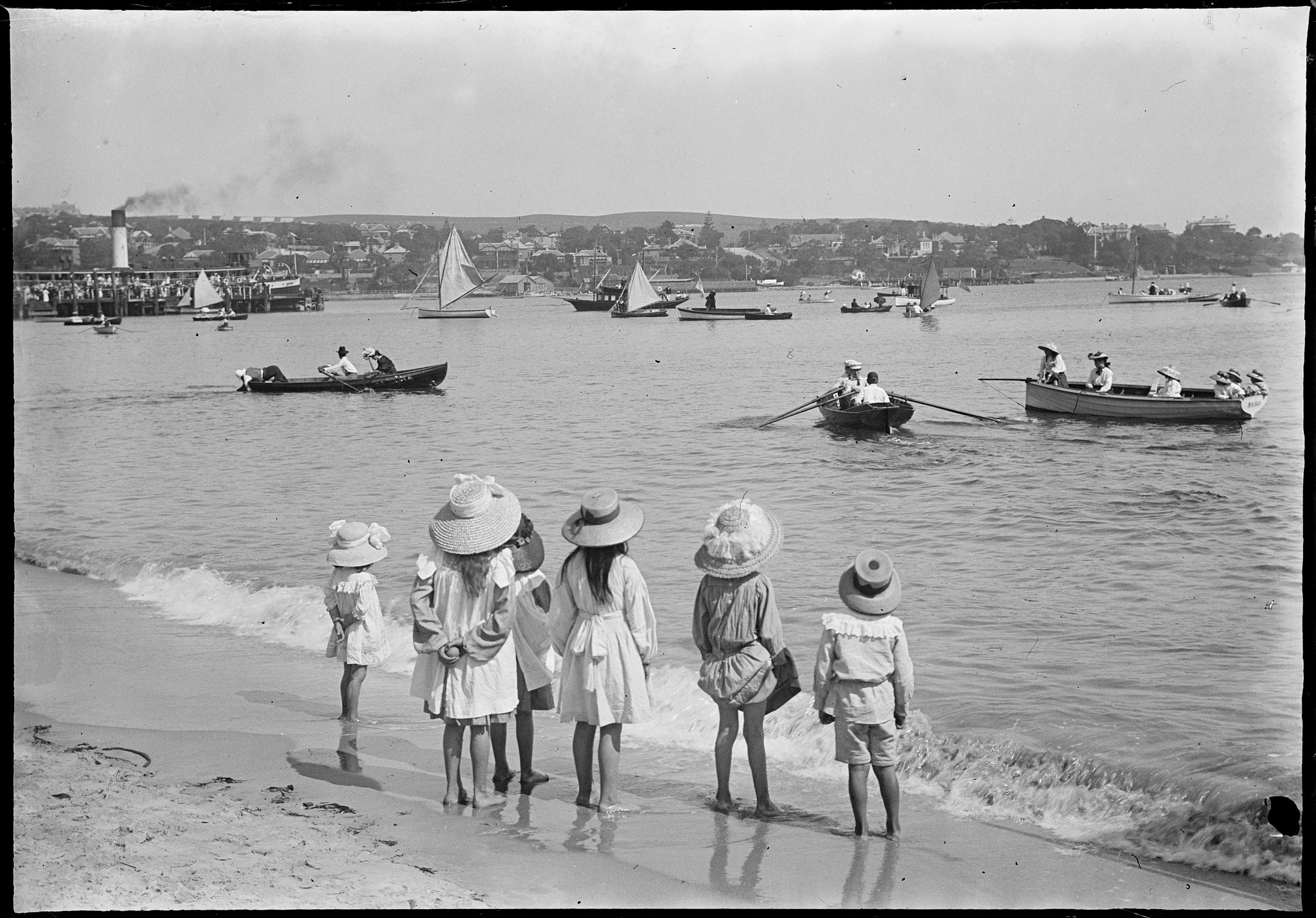
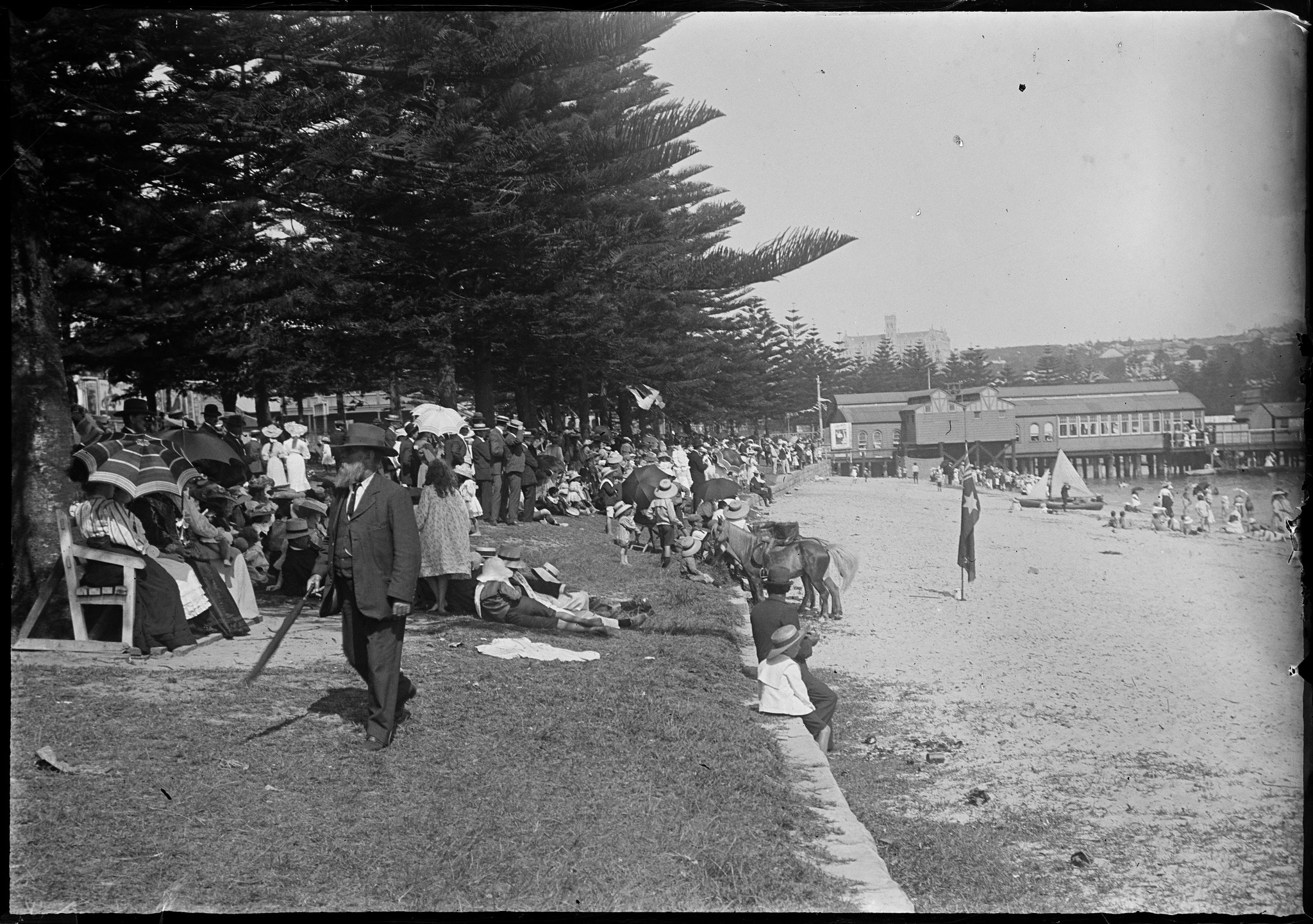
.jpg?timestamp=1580773554231)
